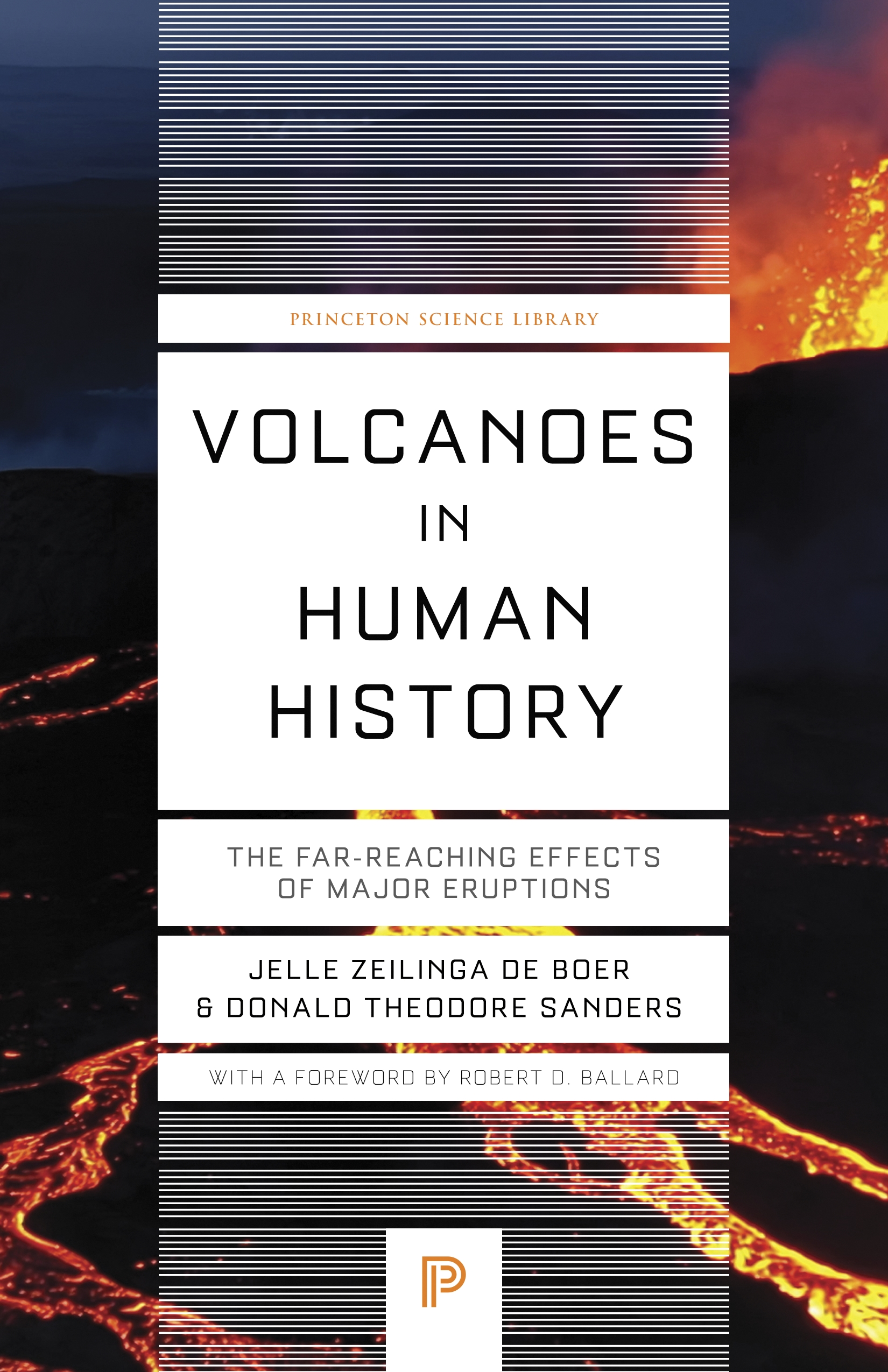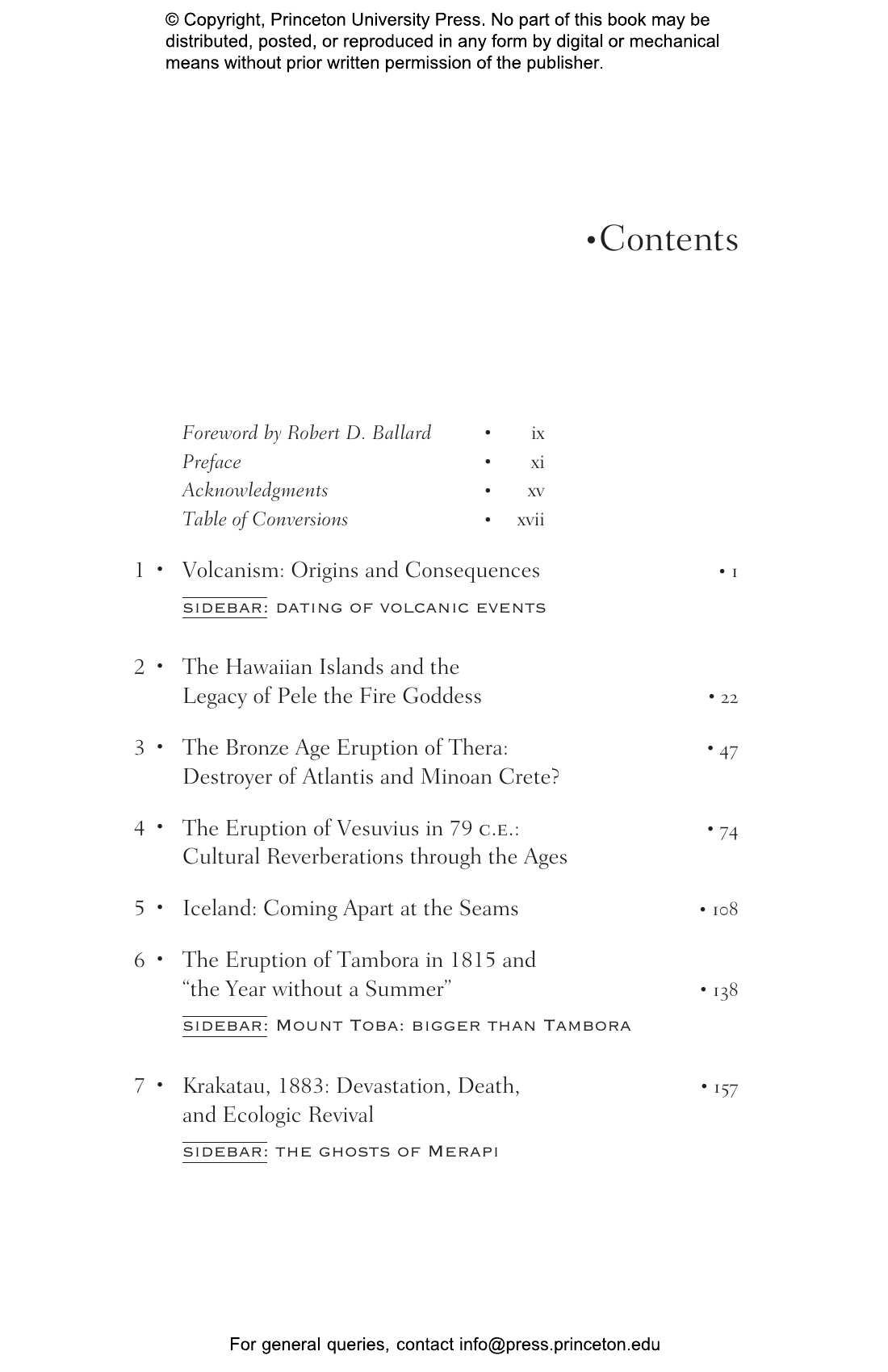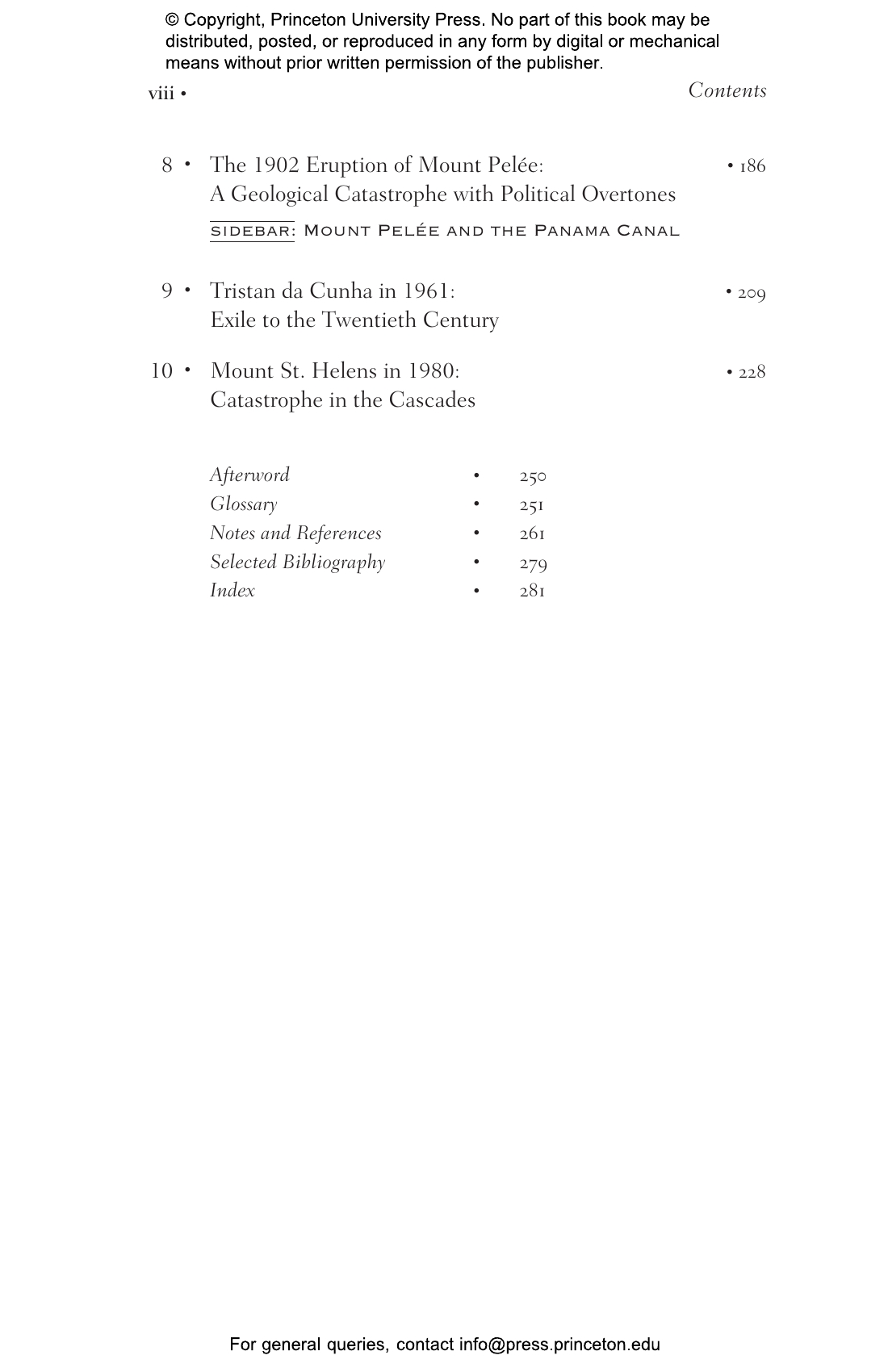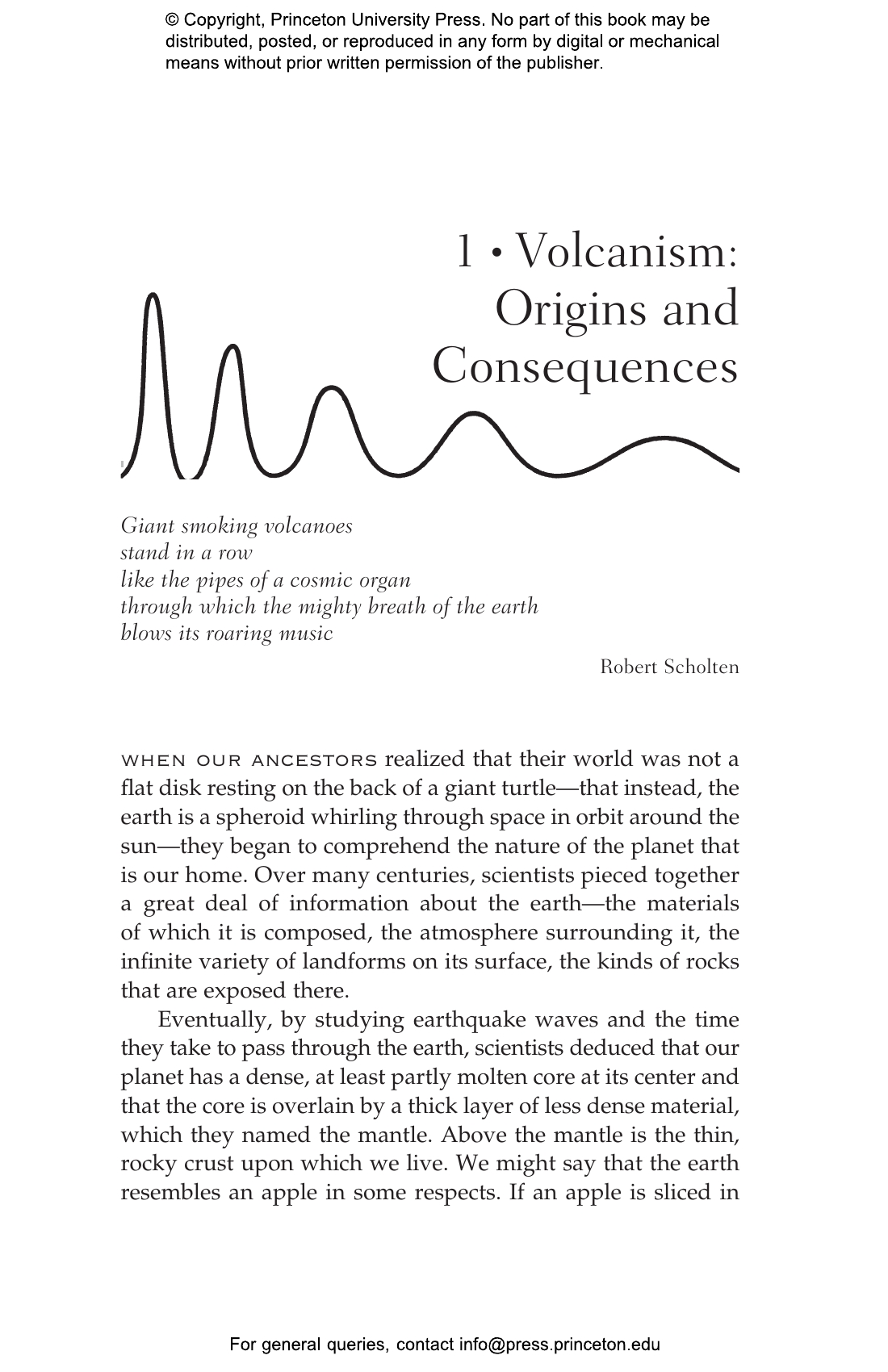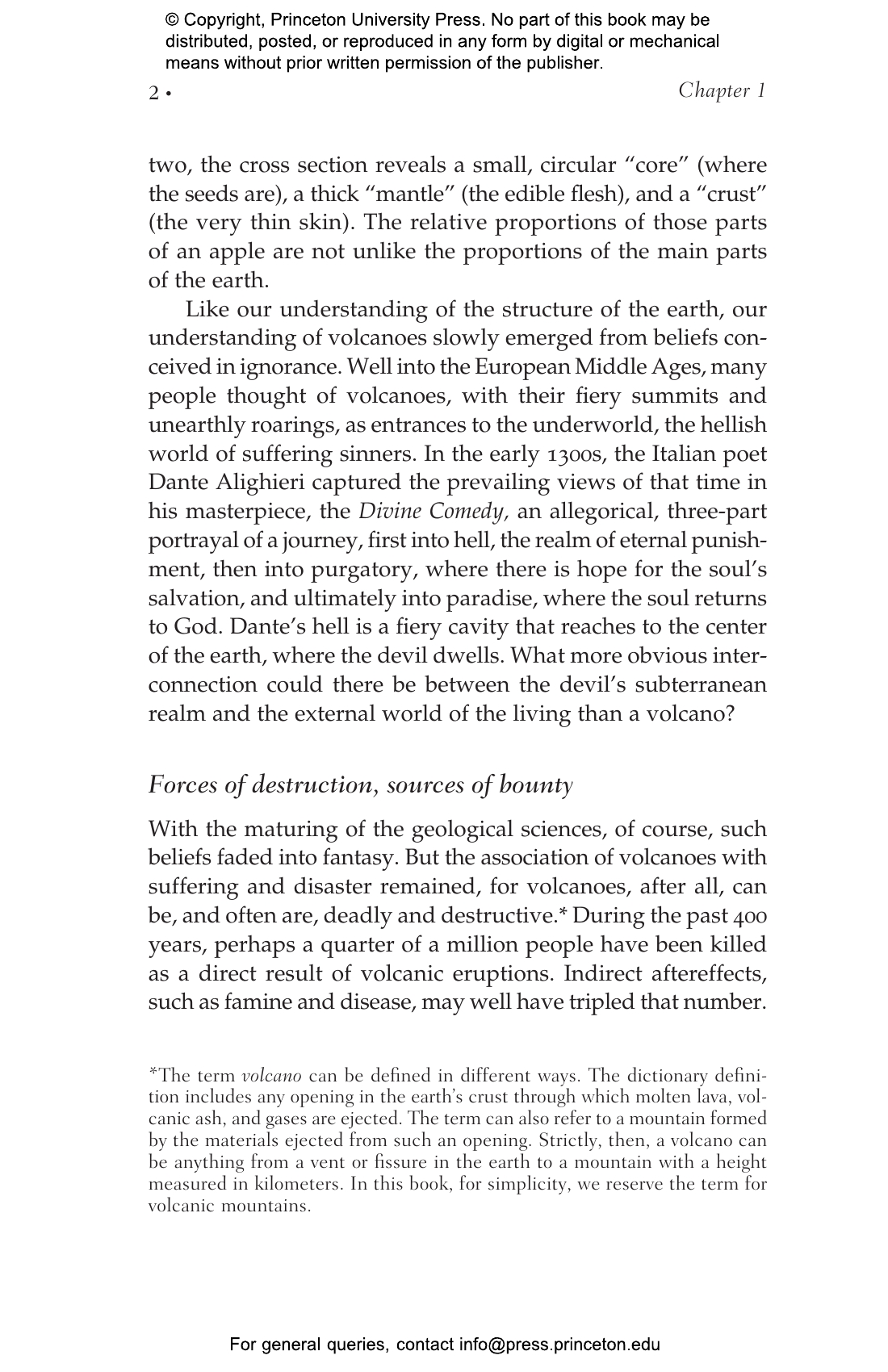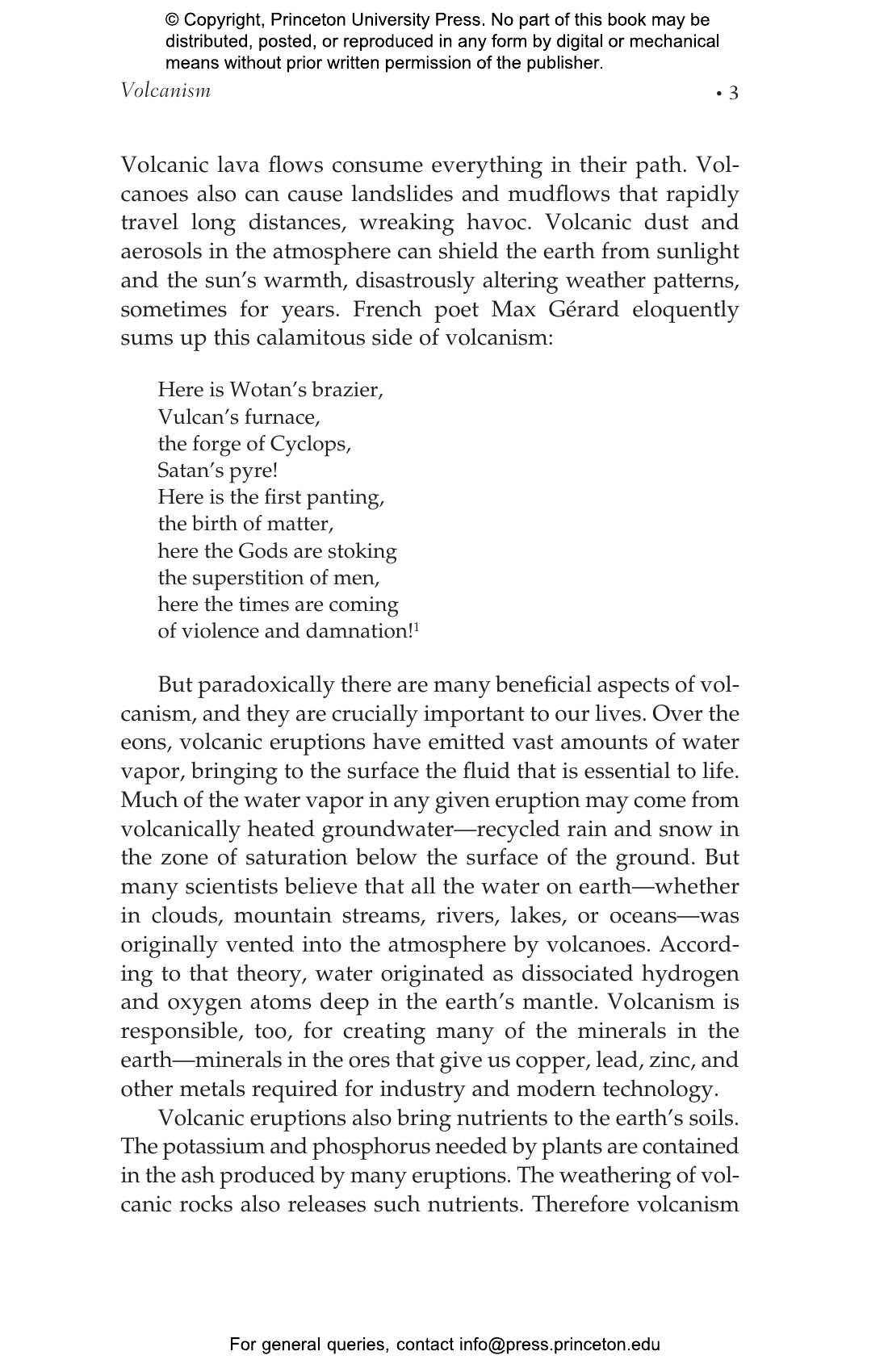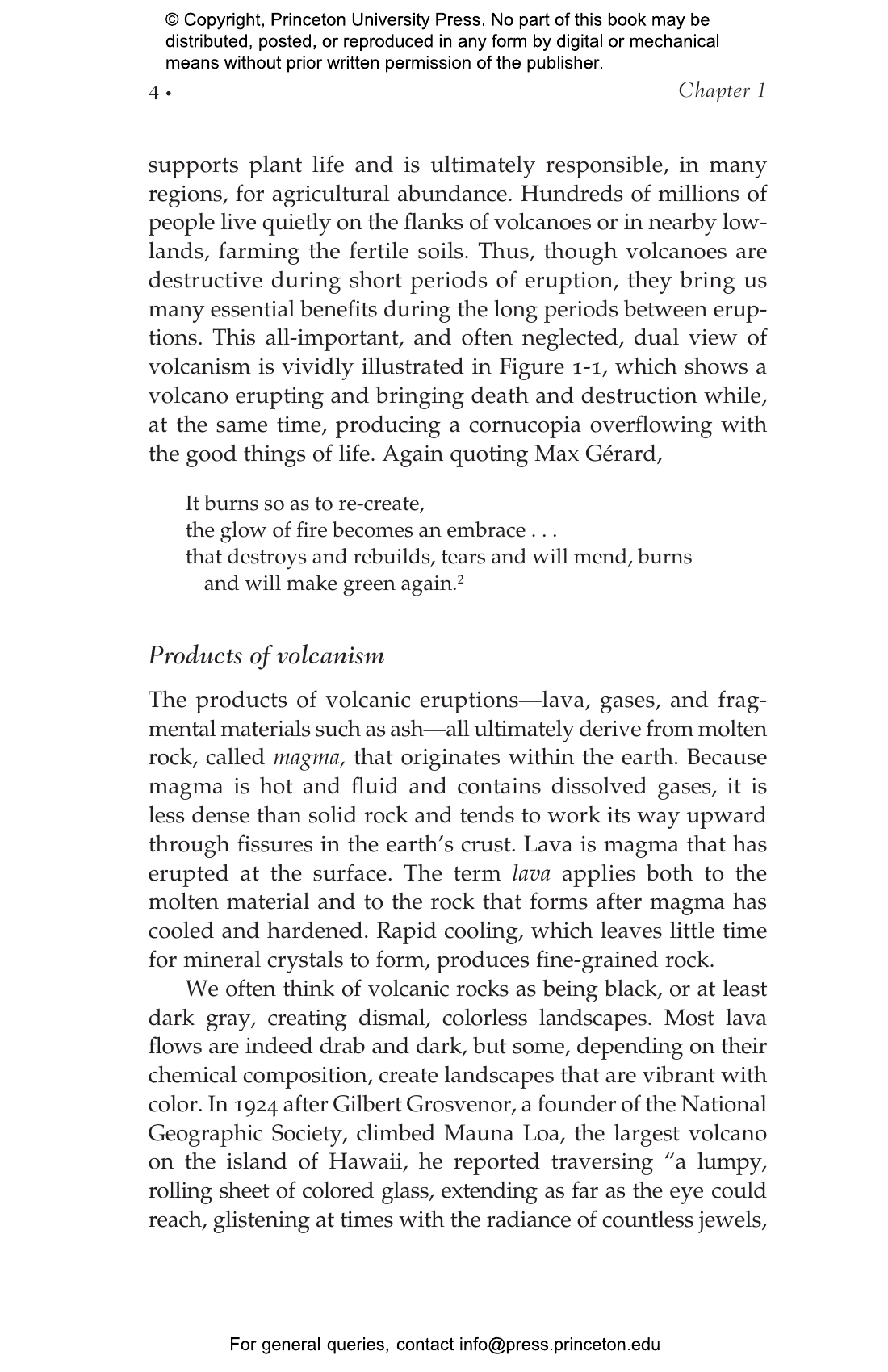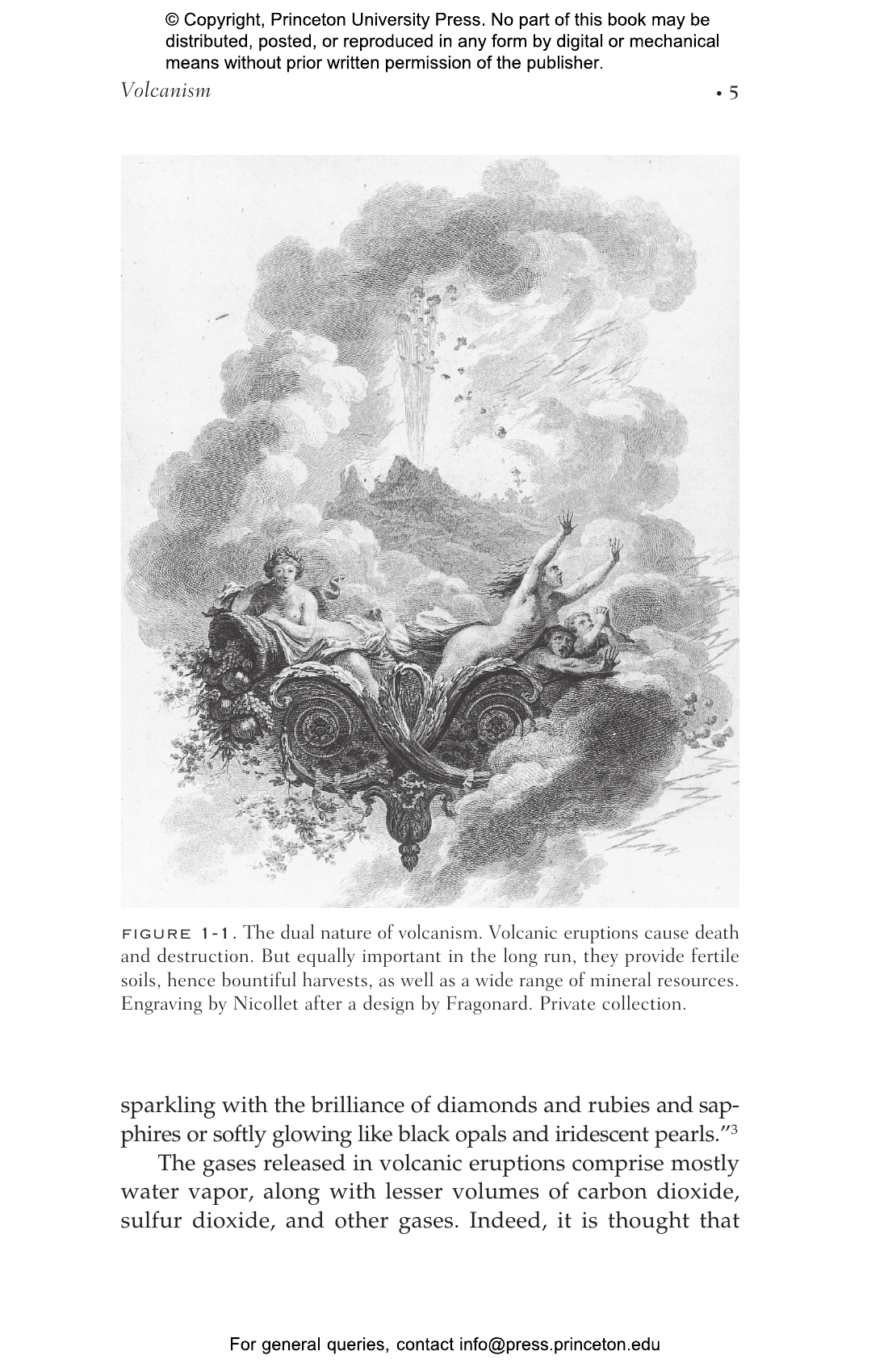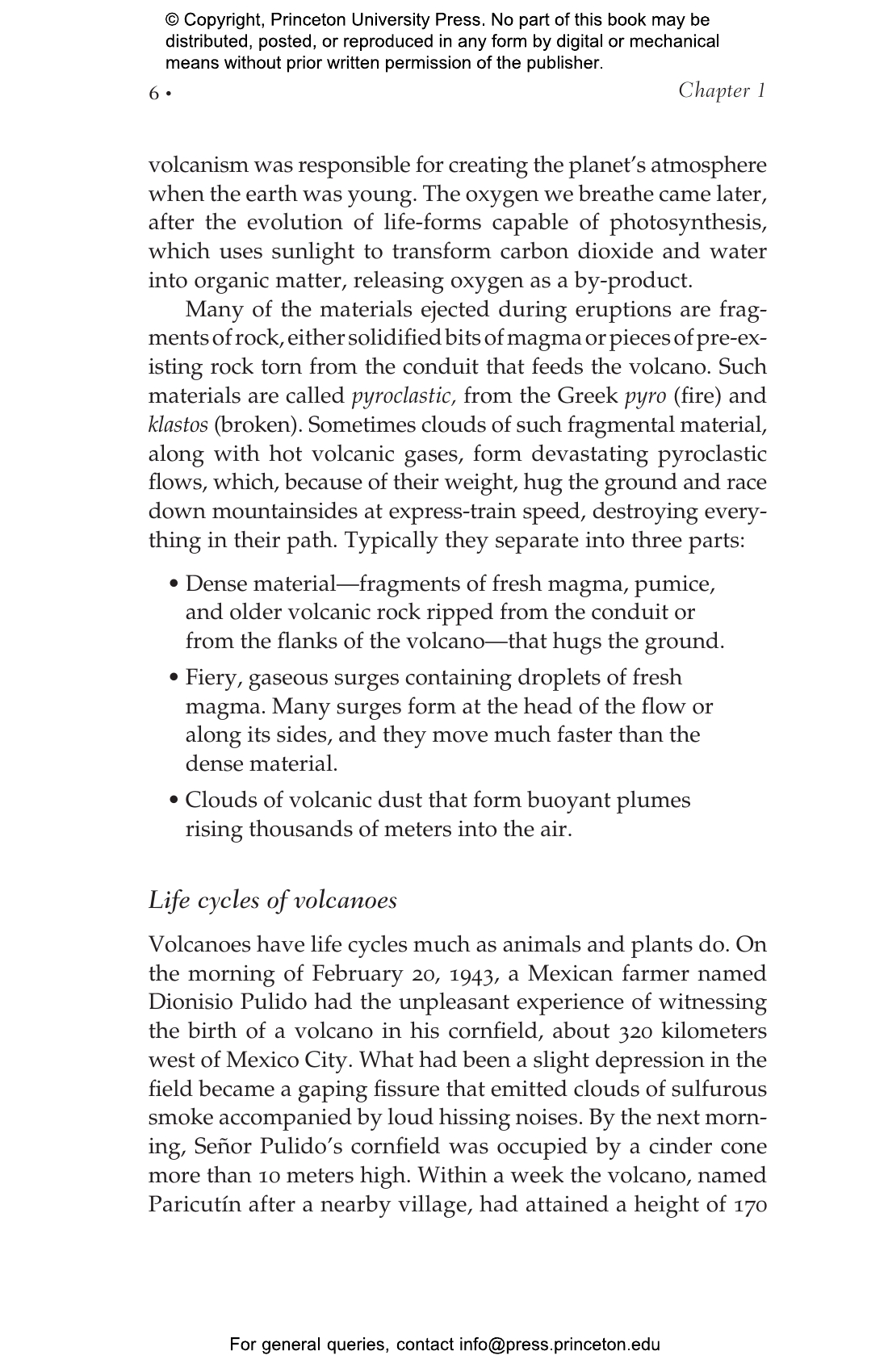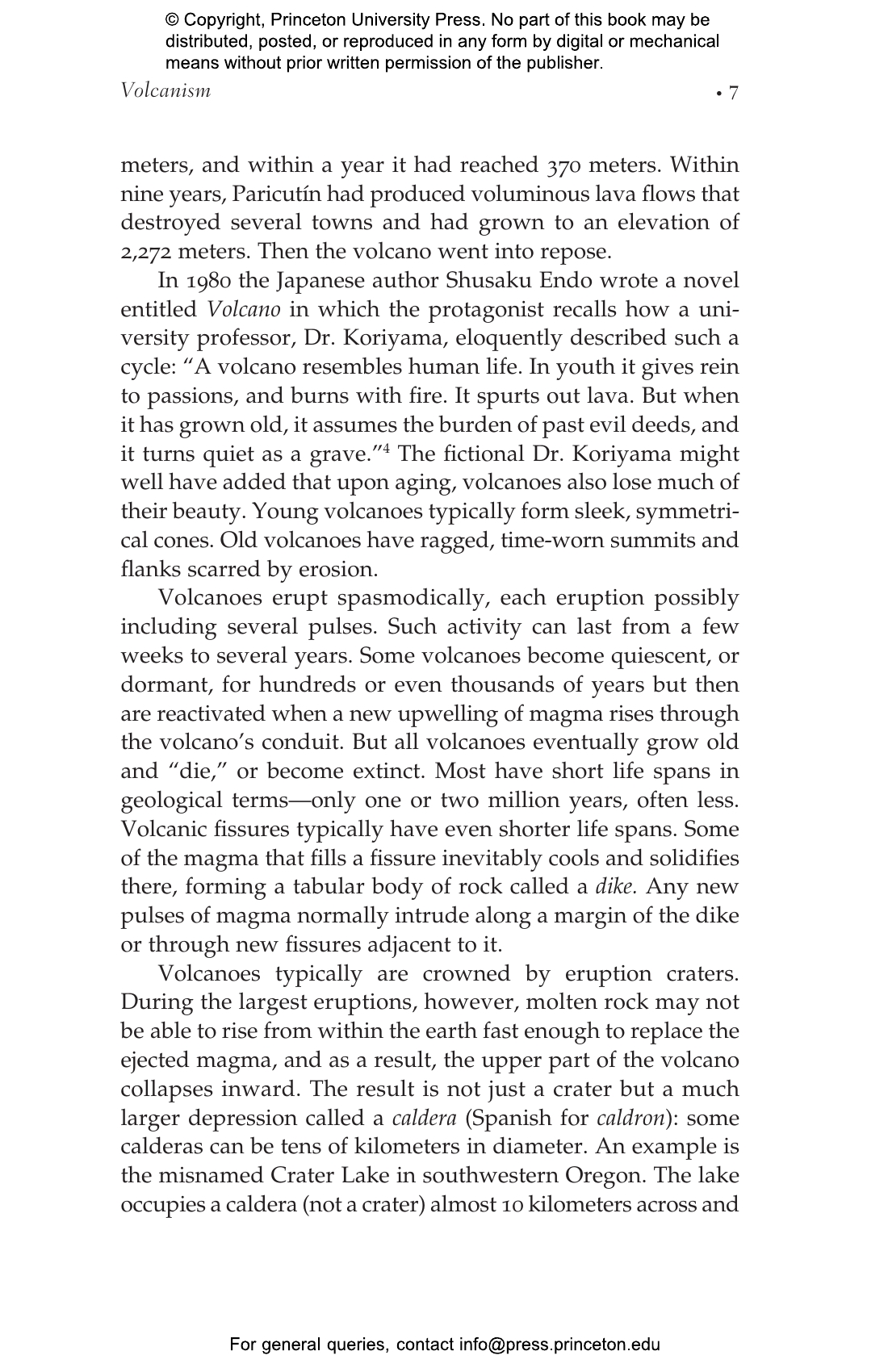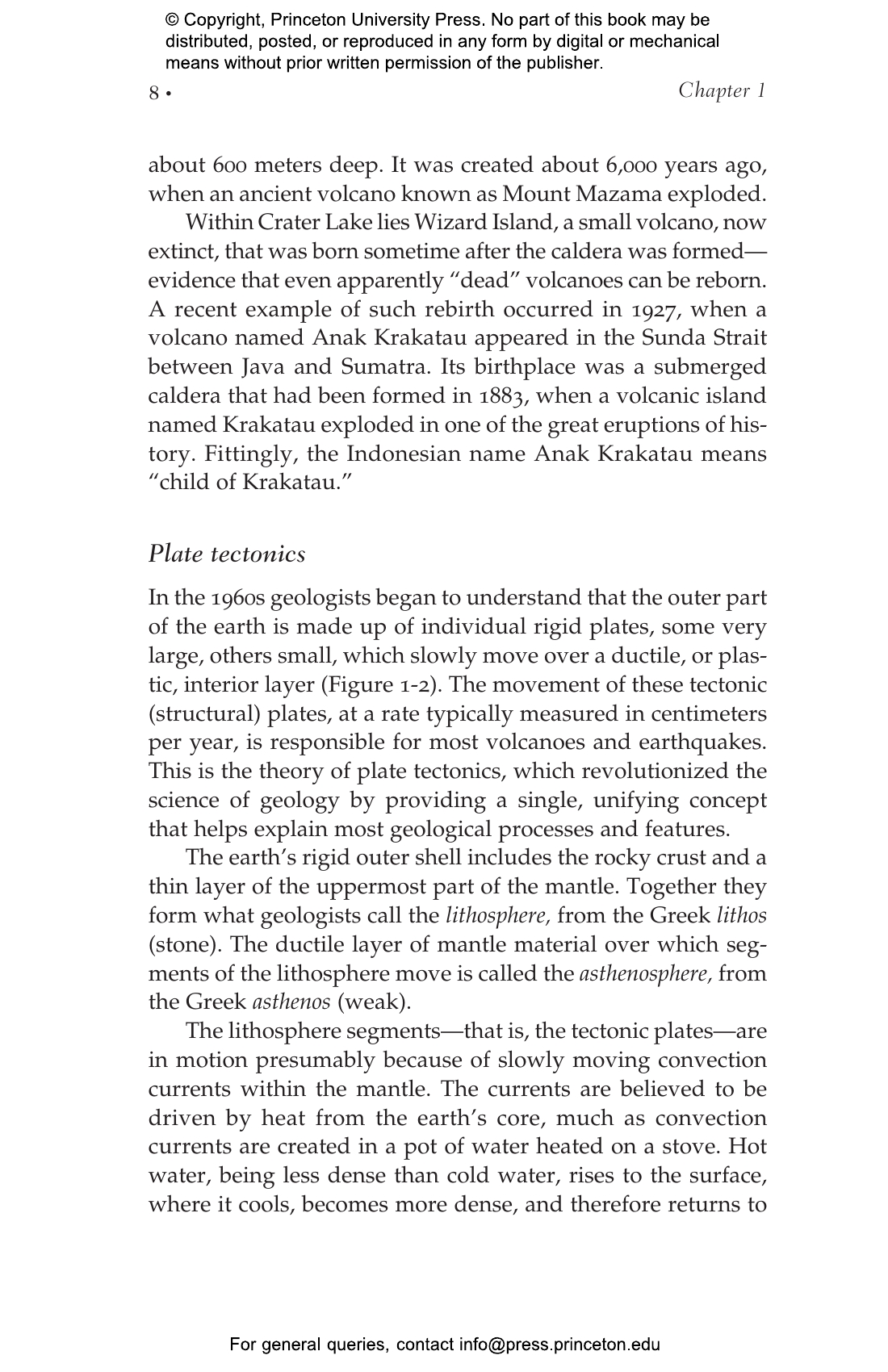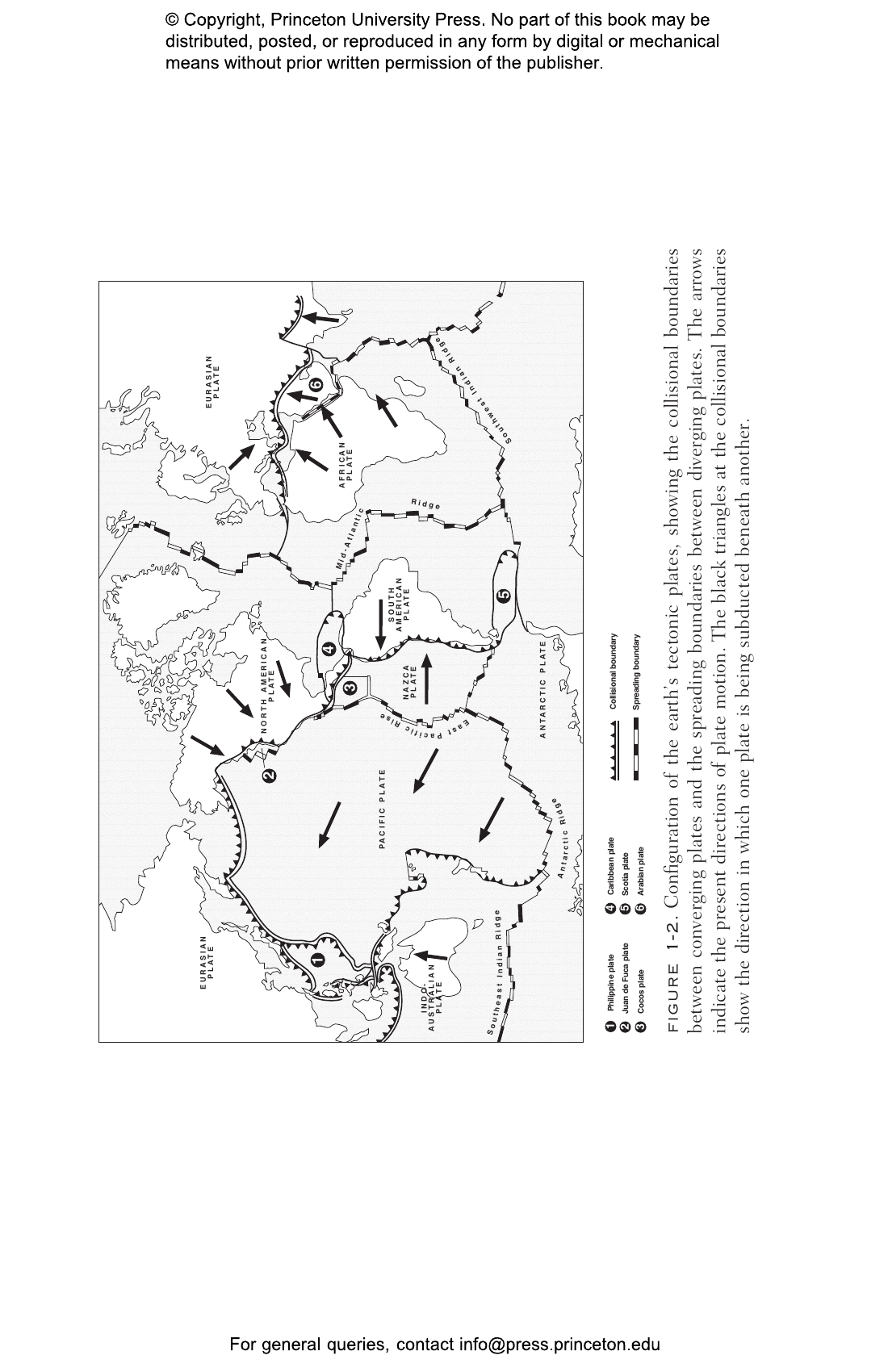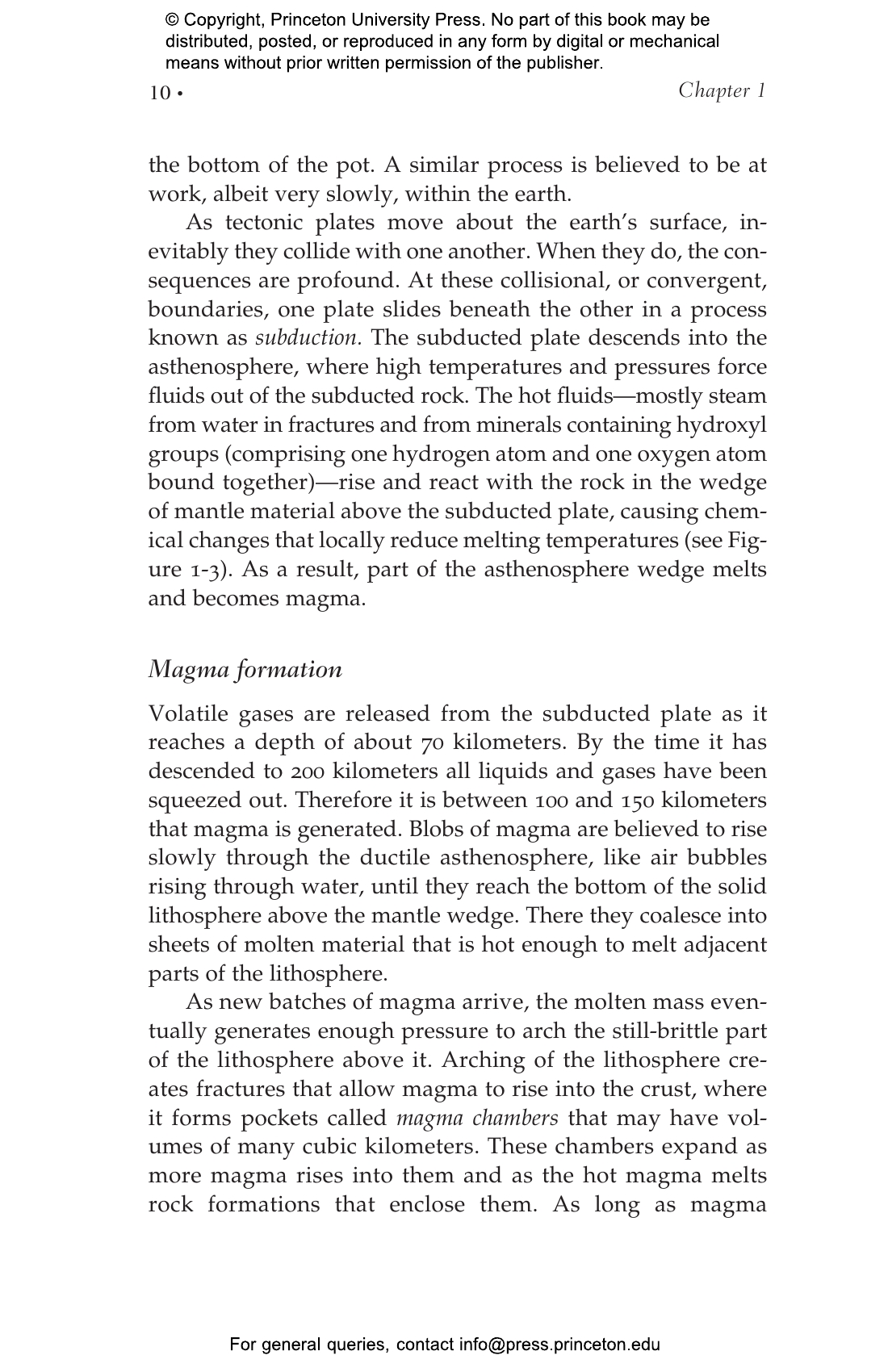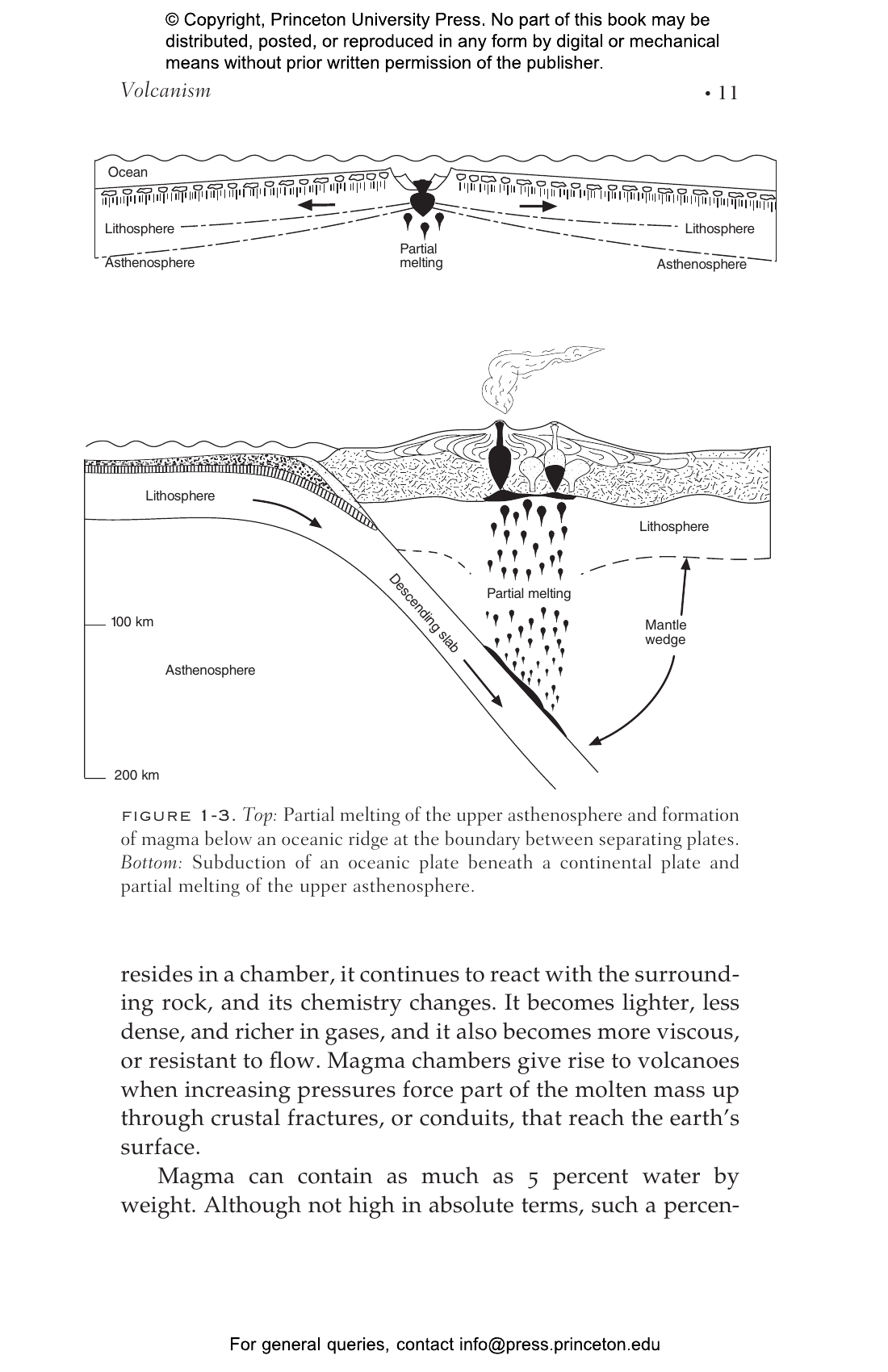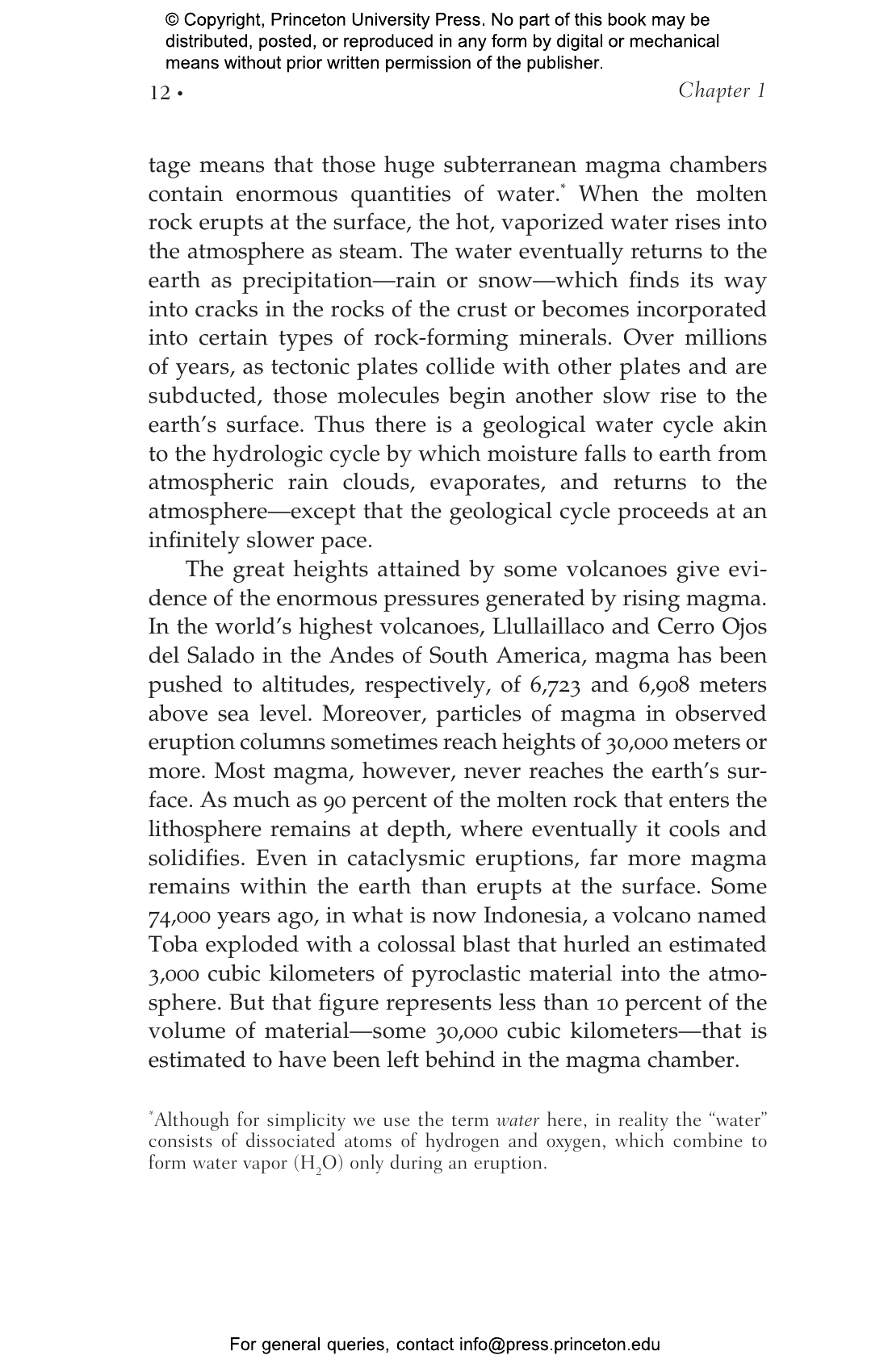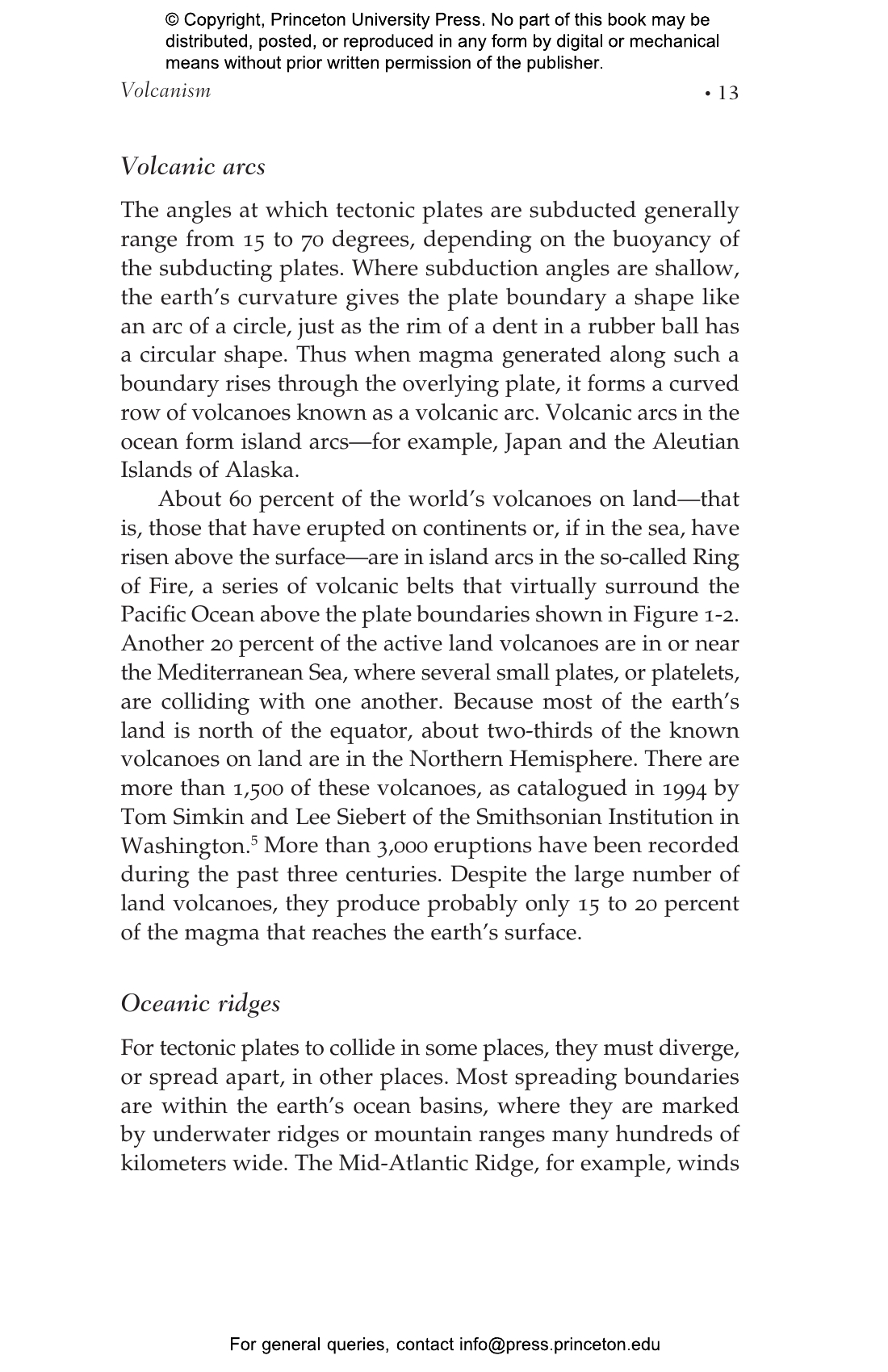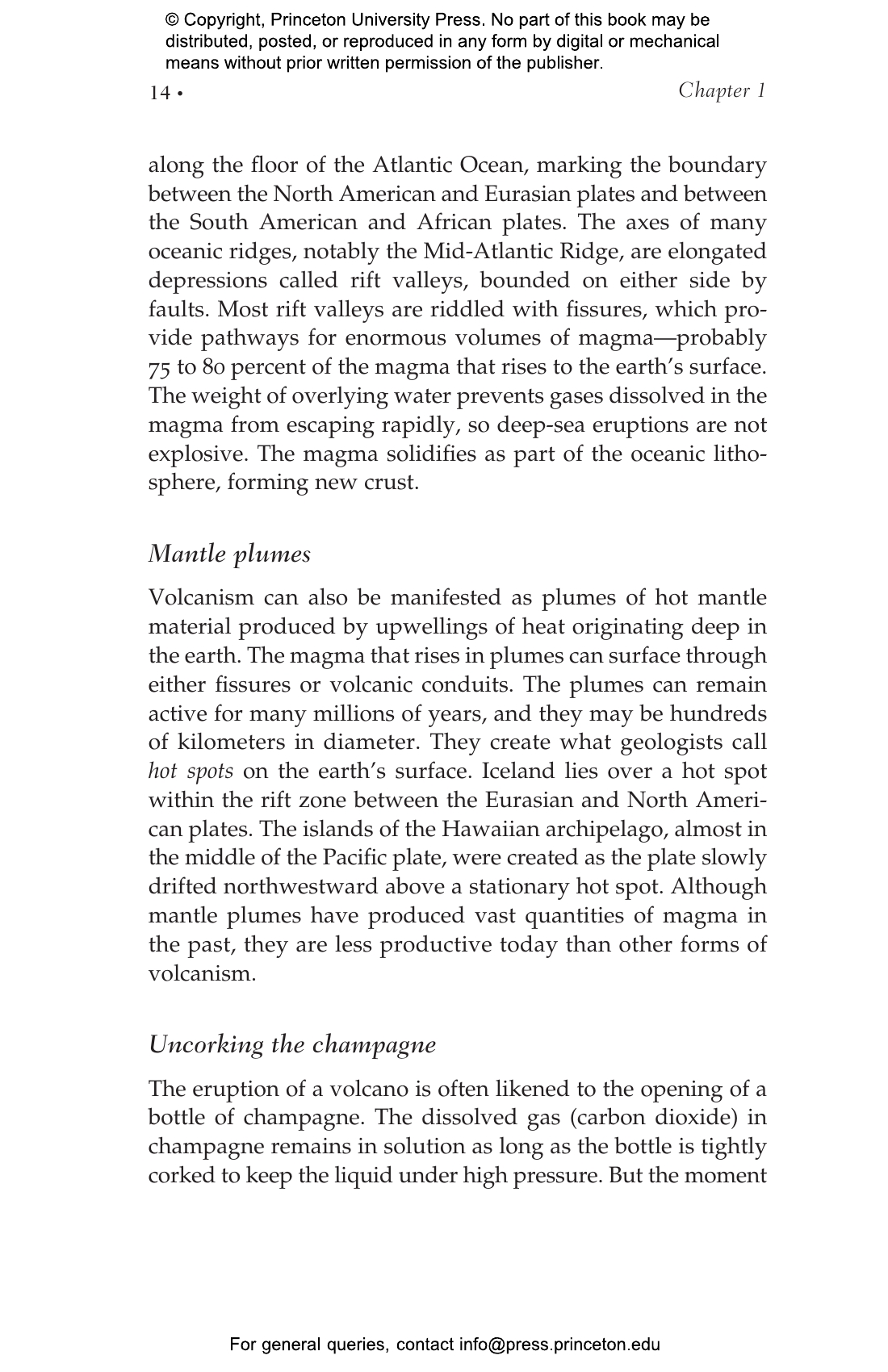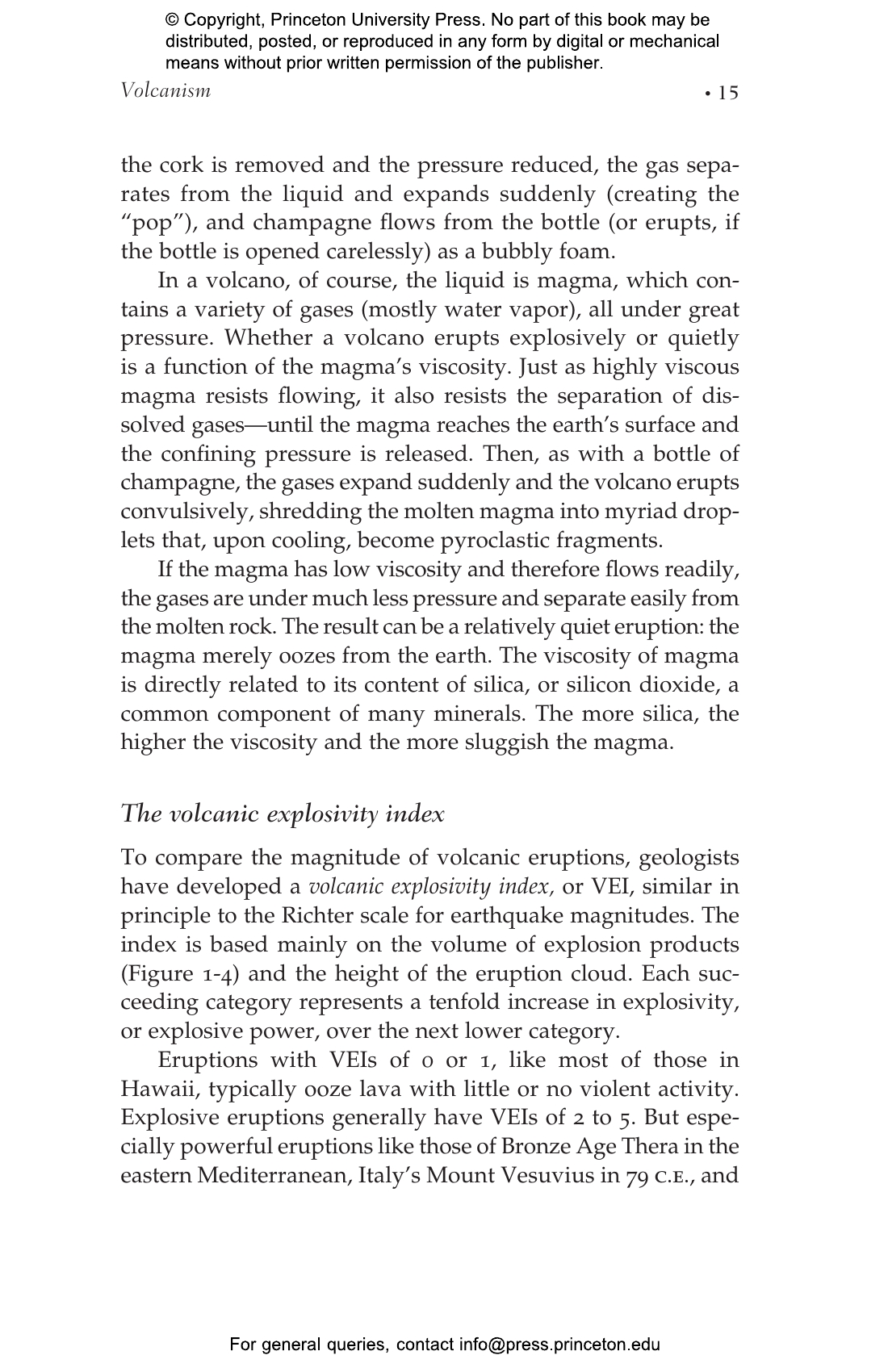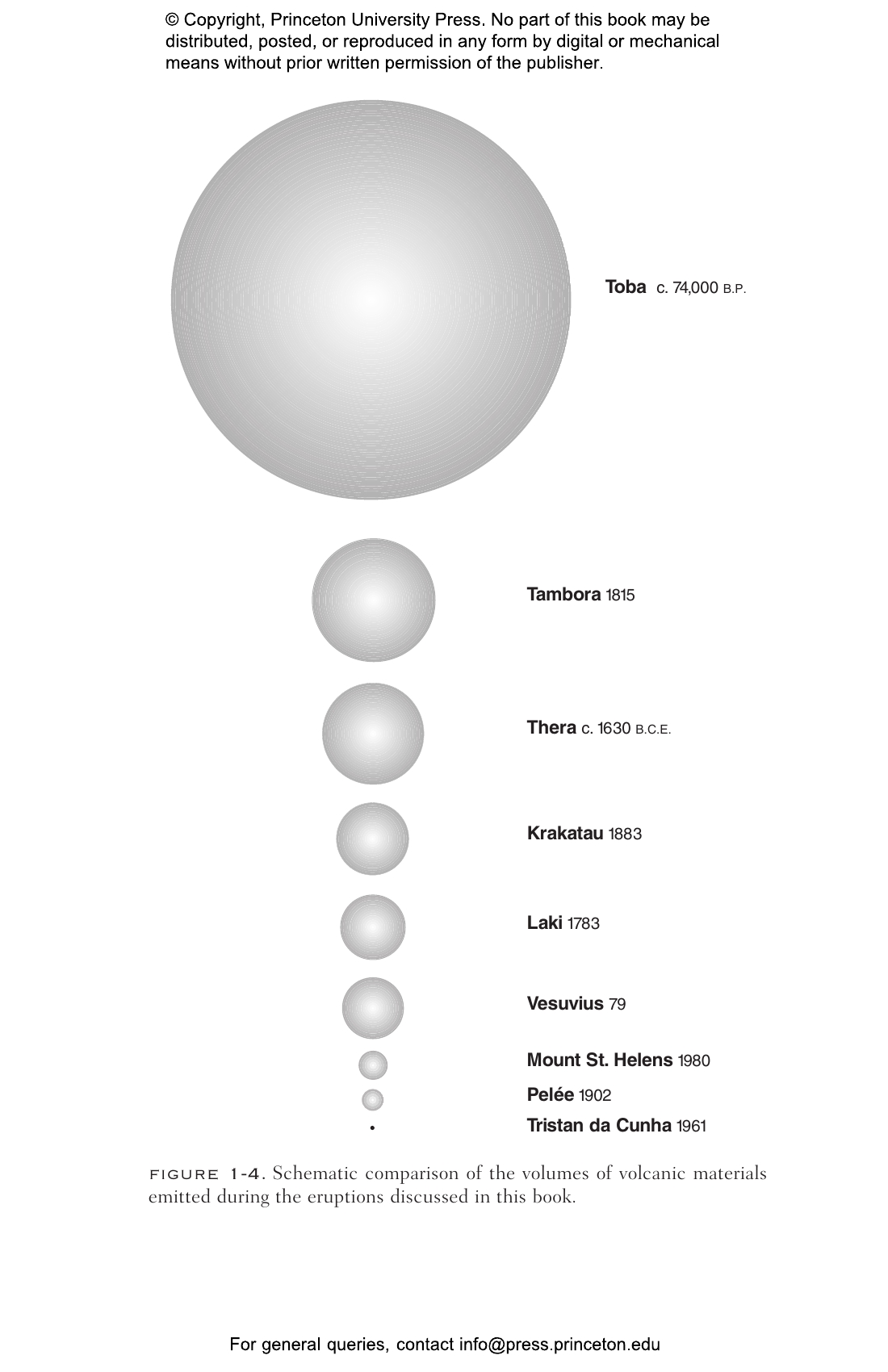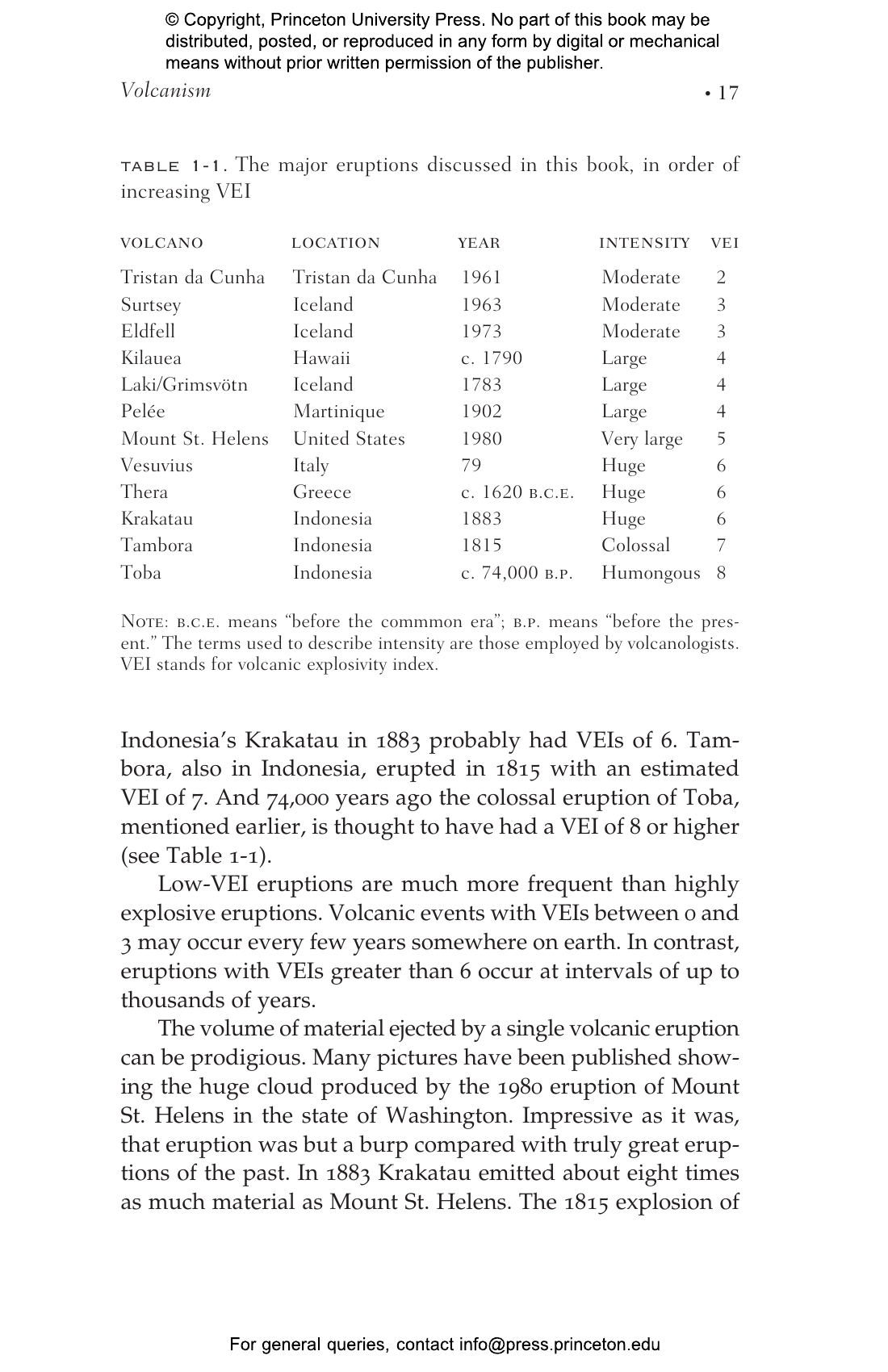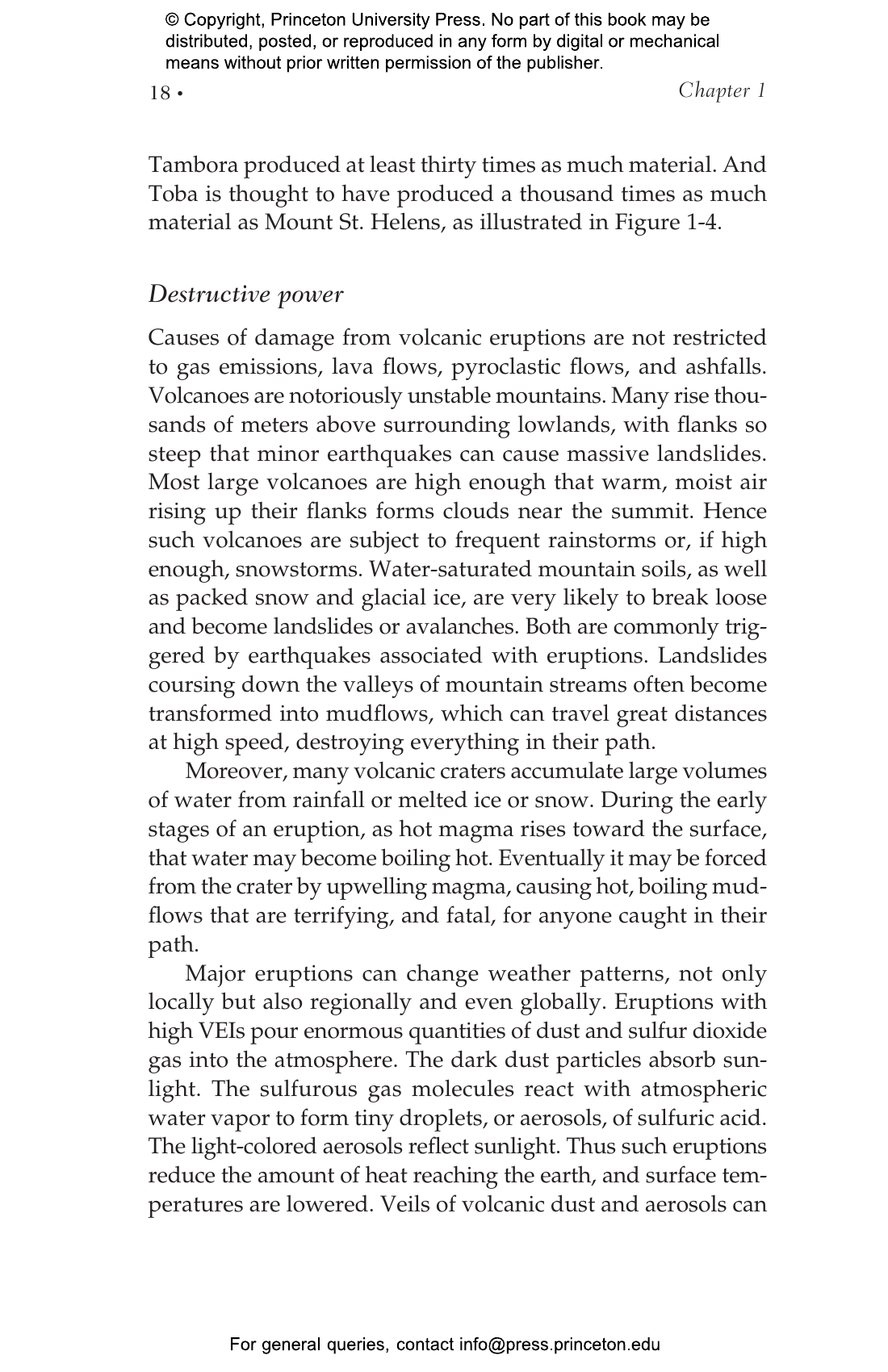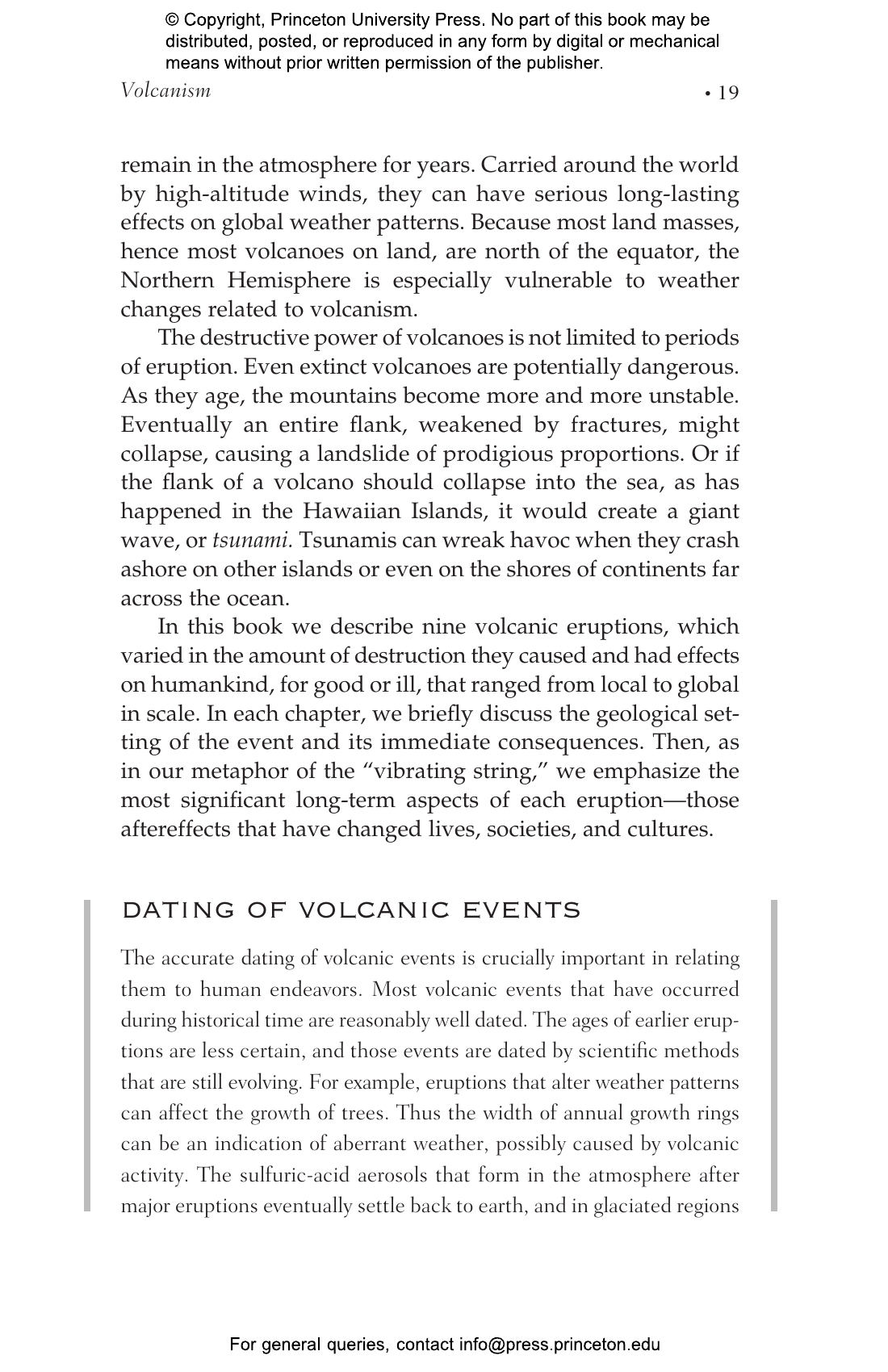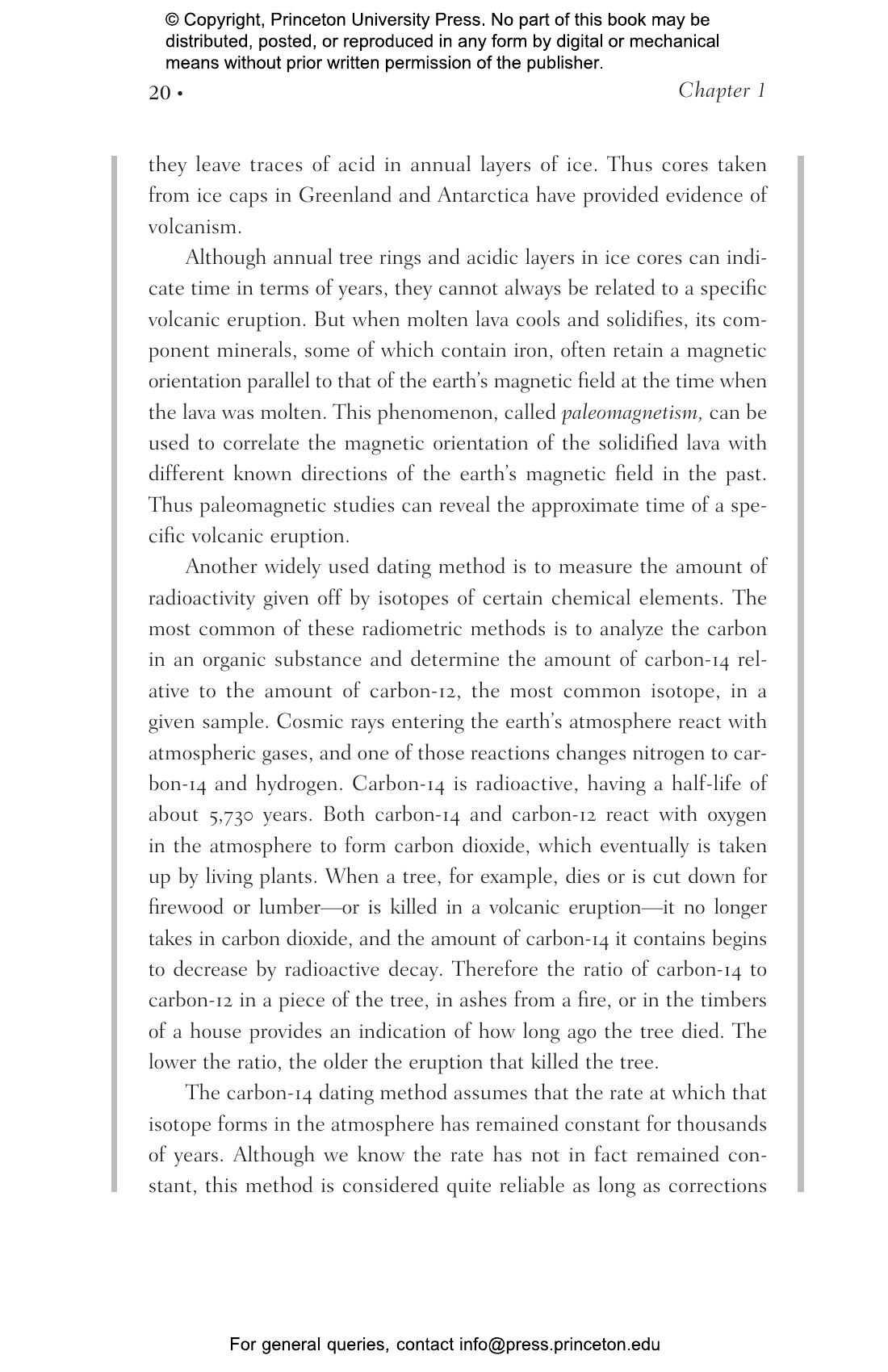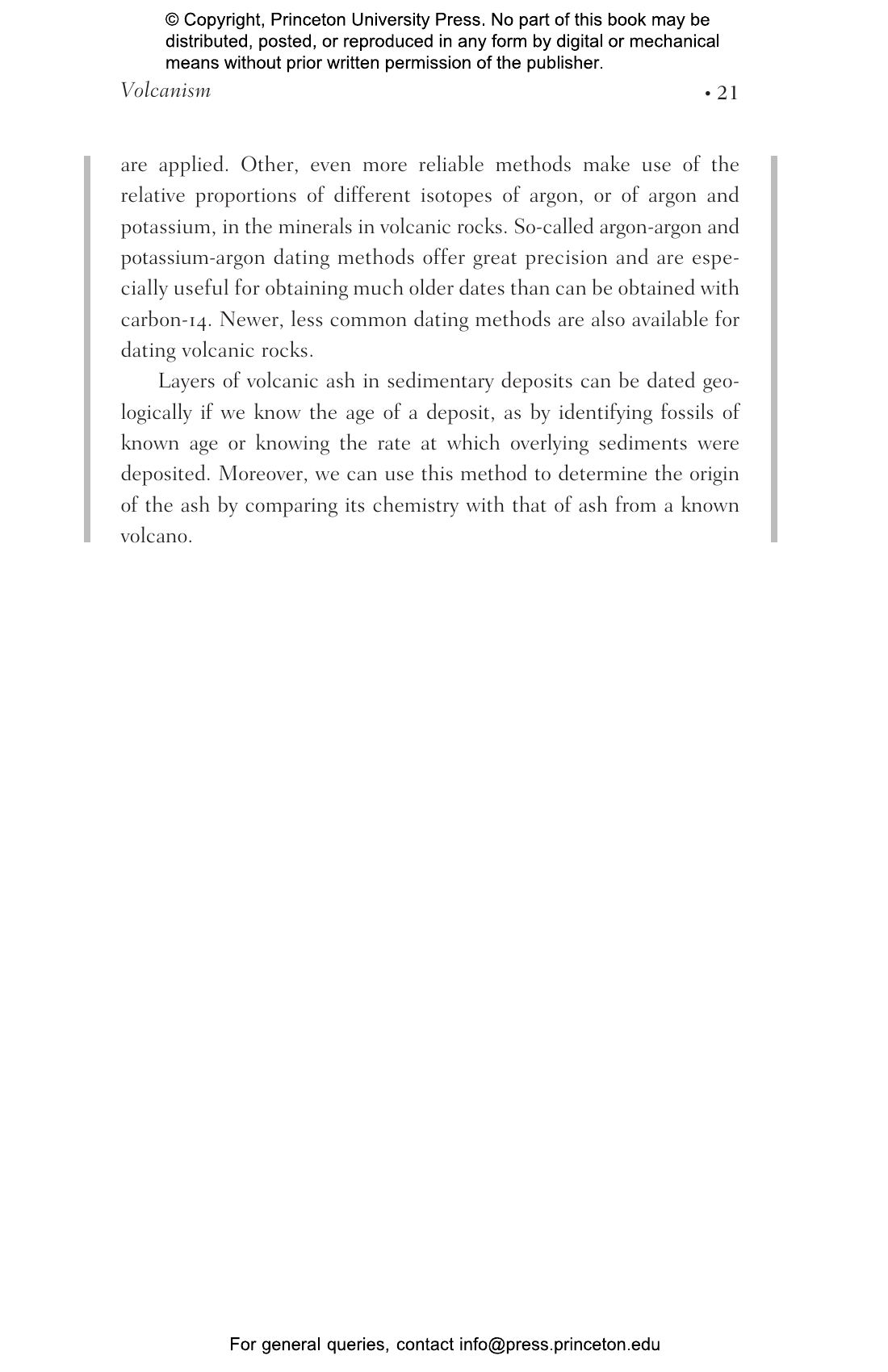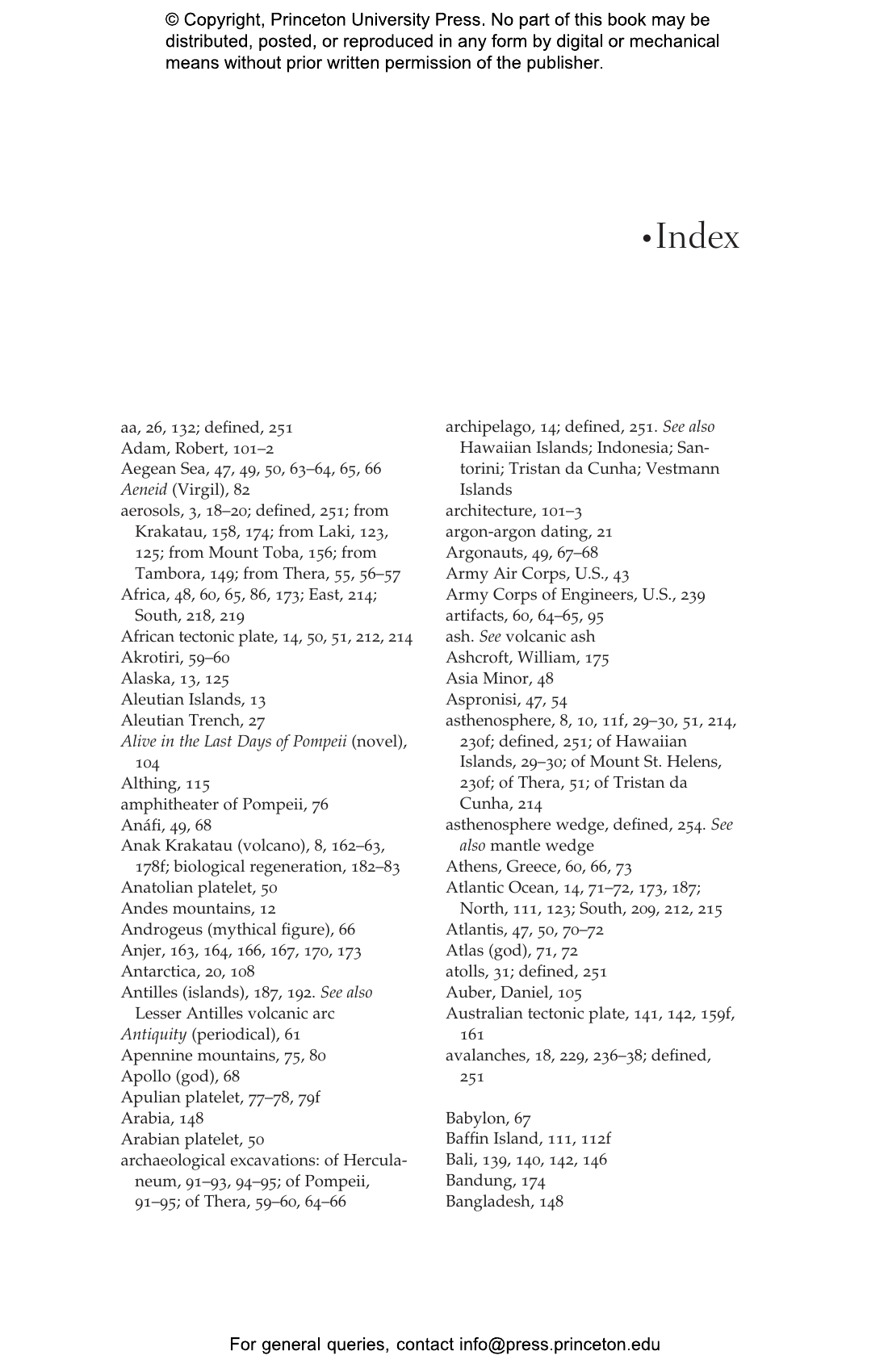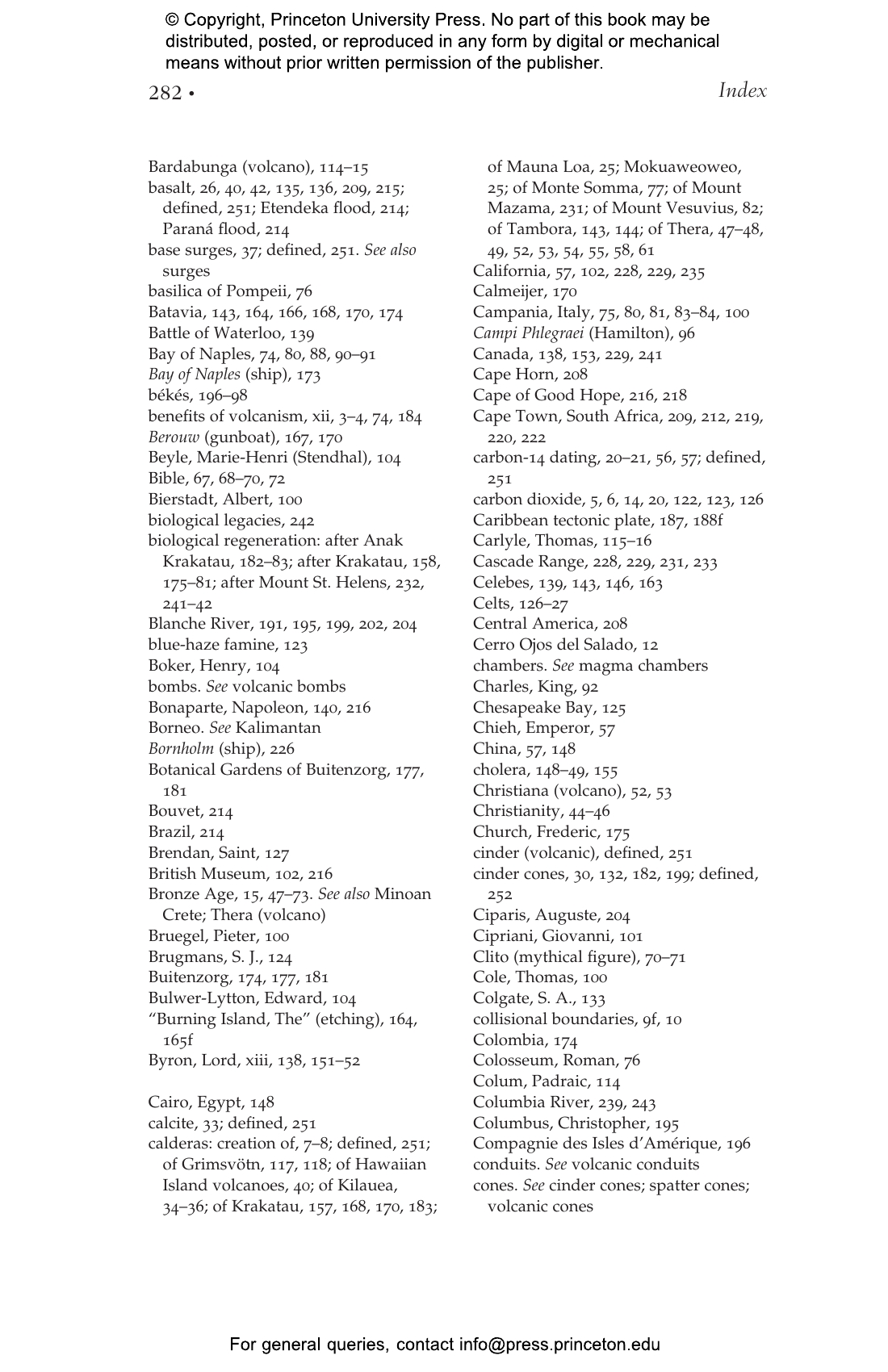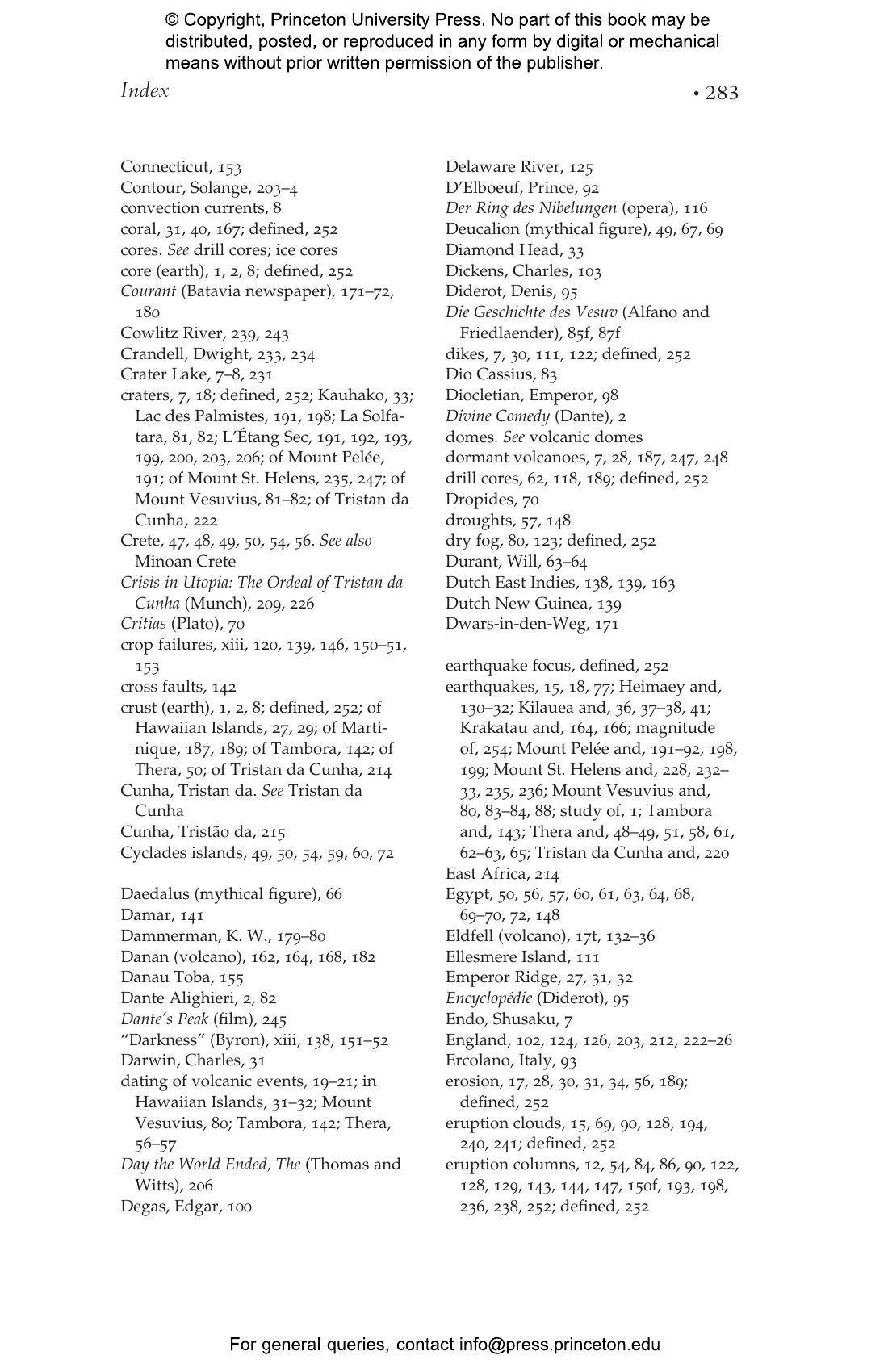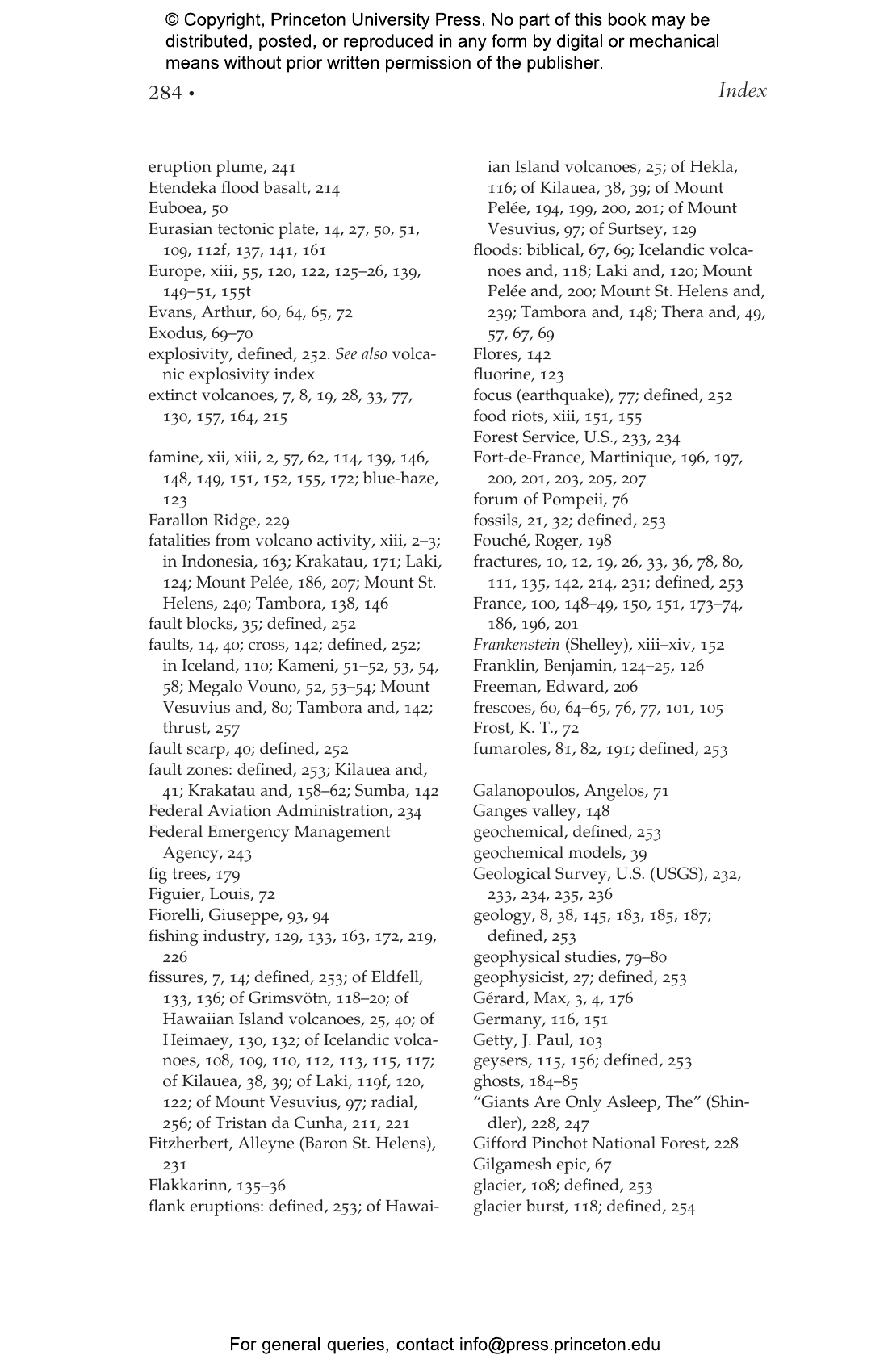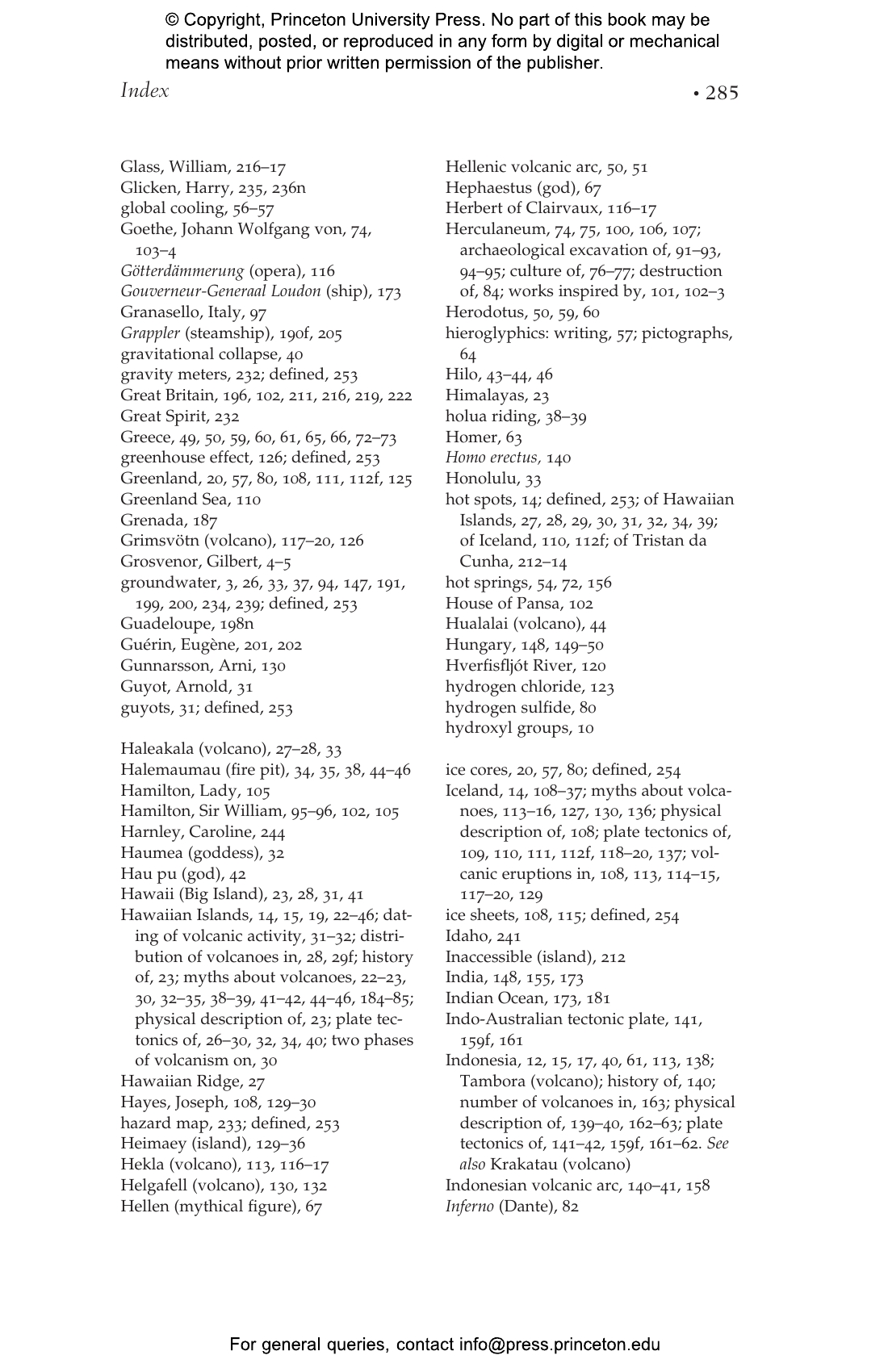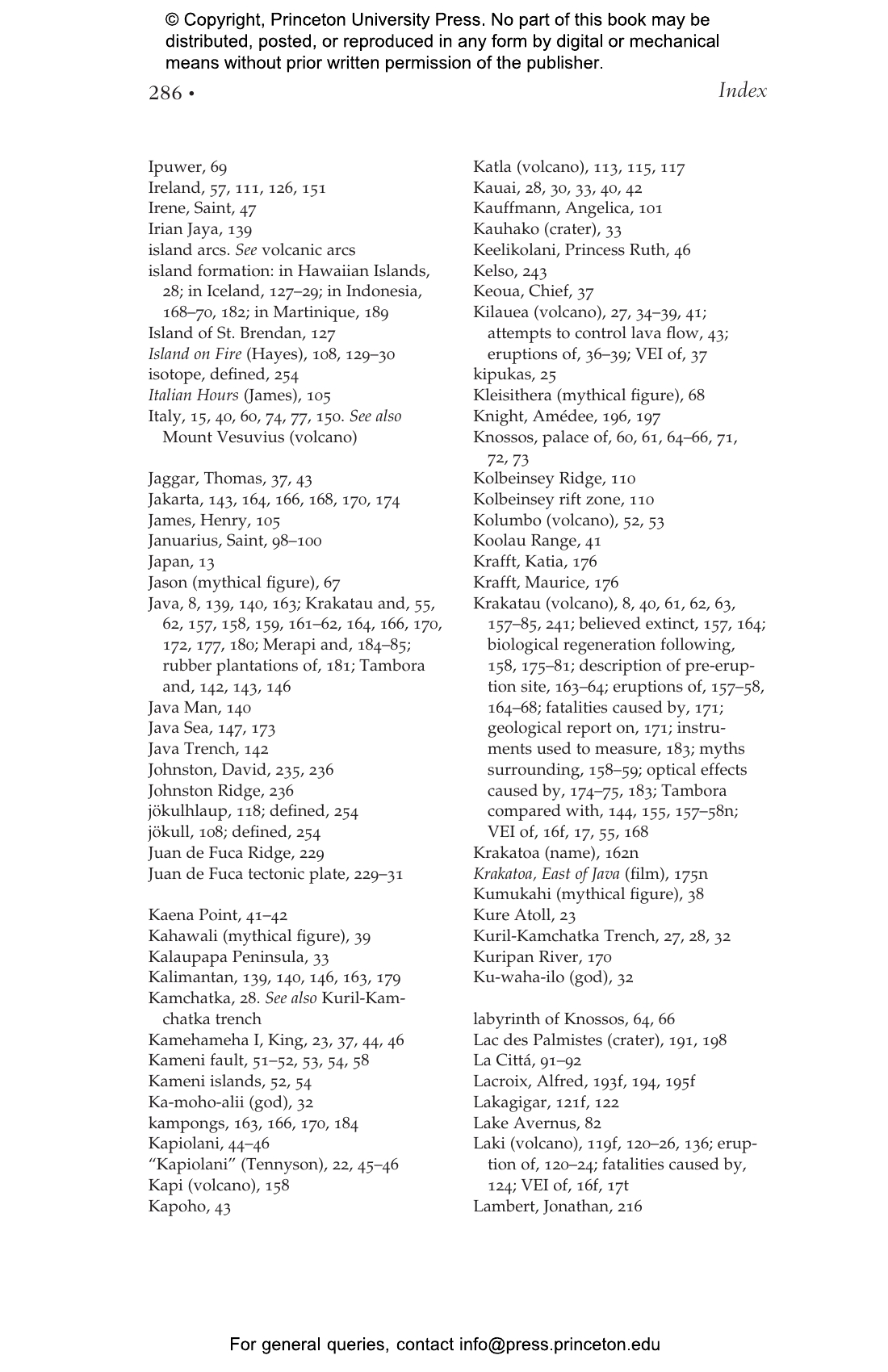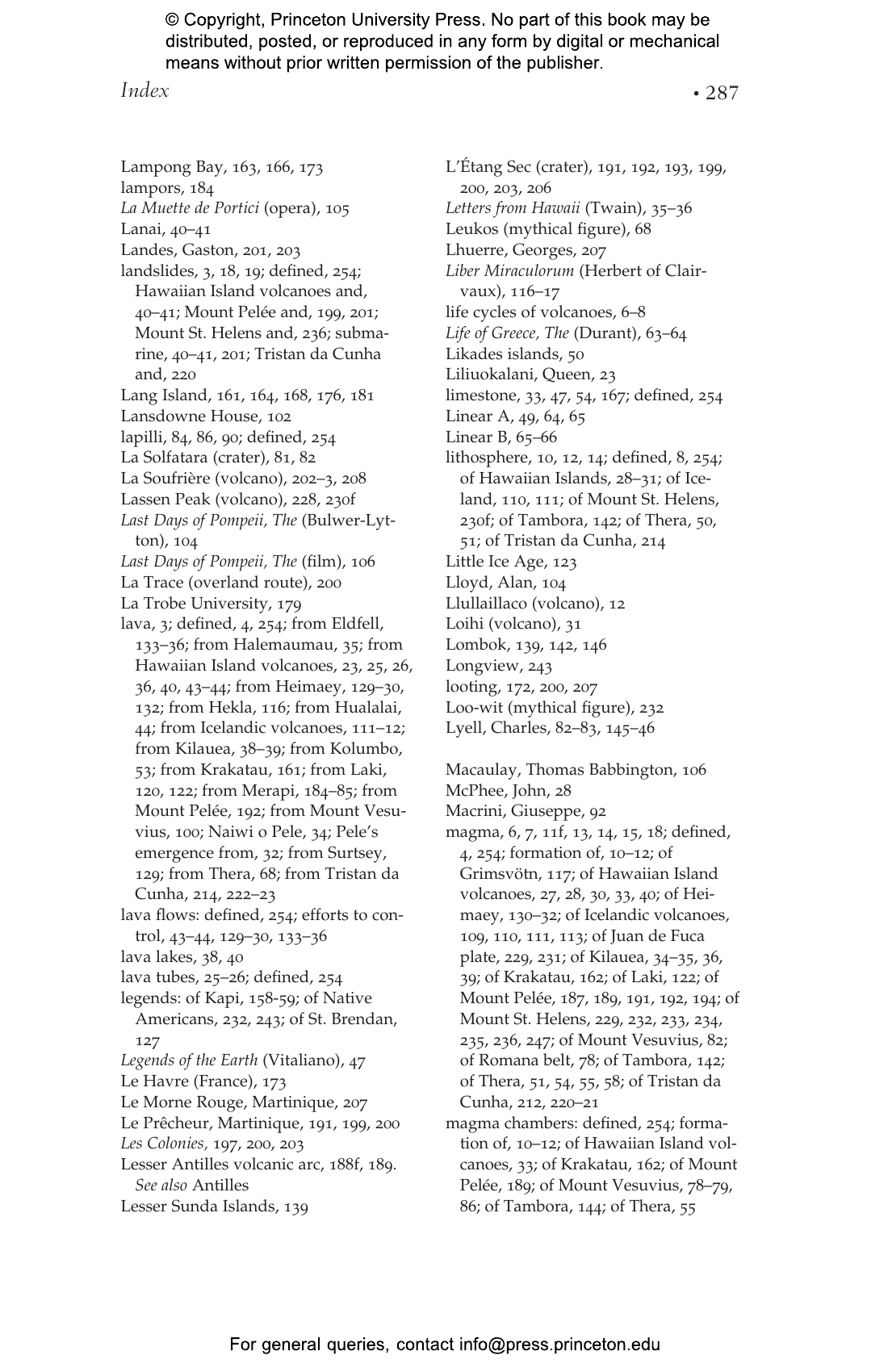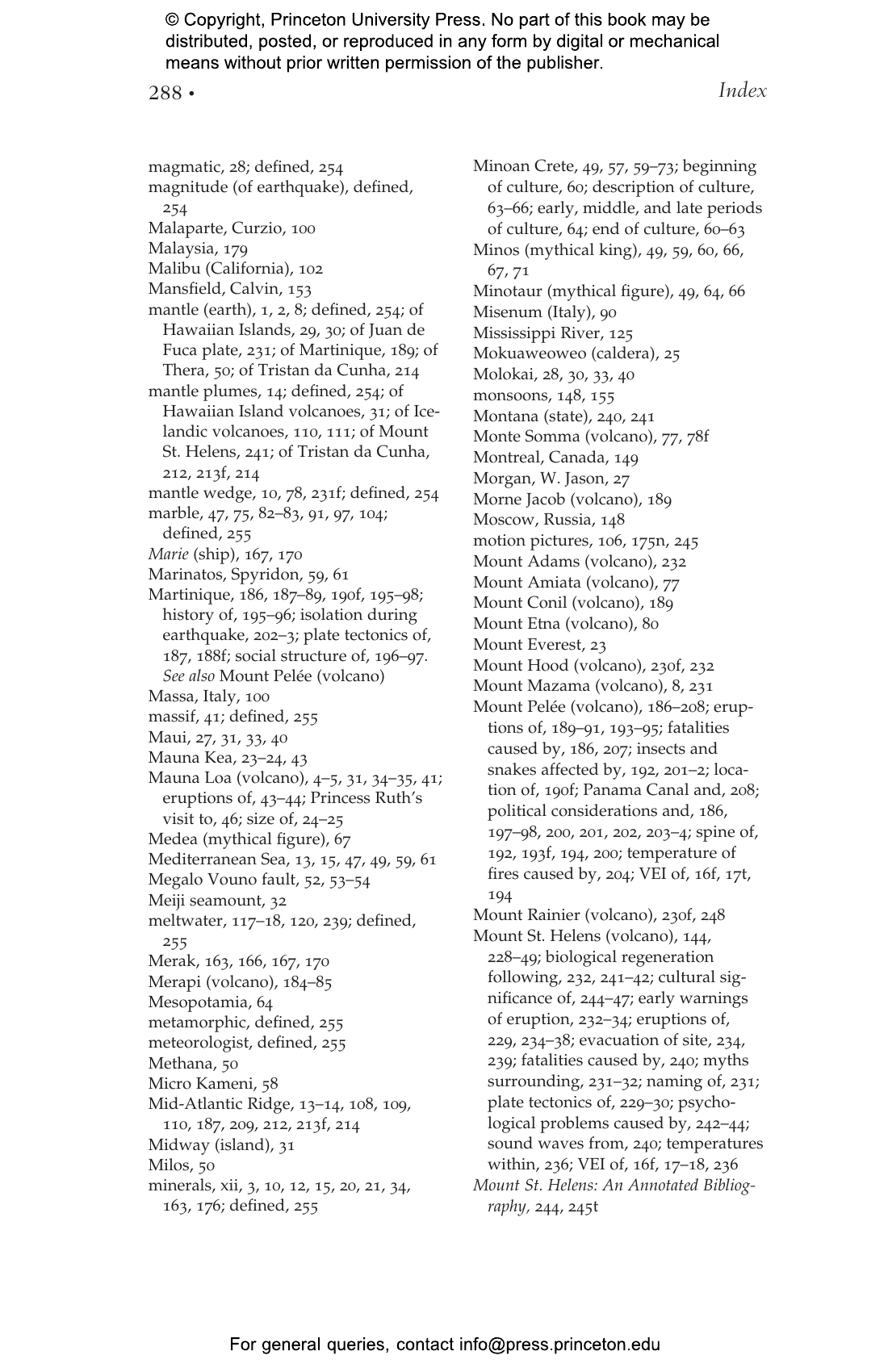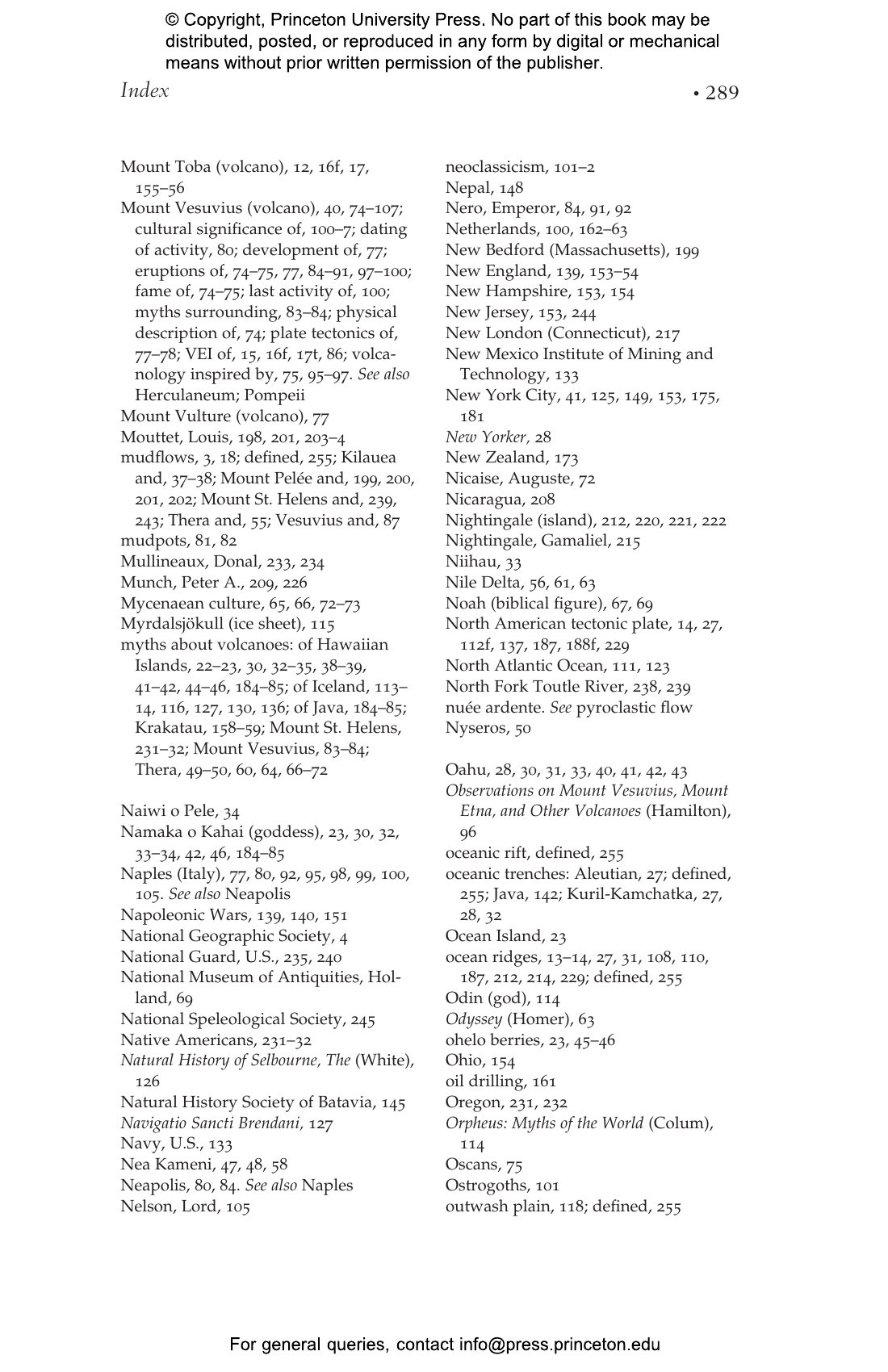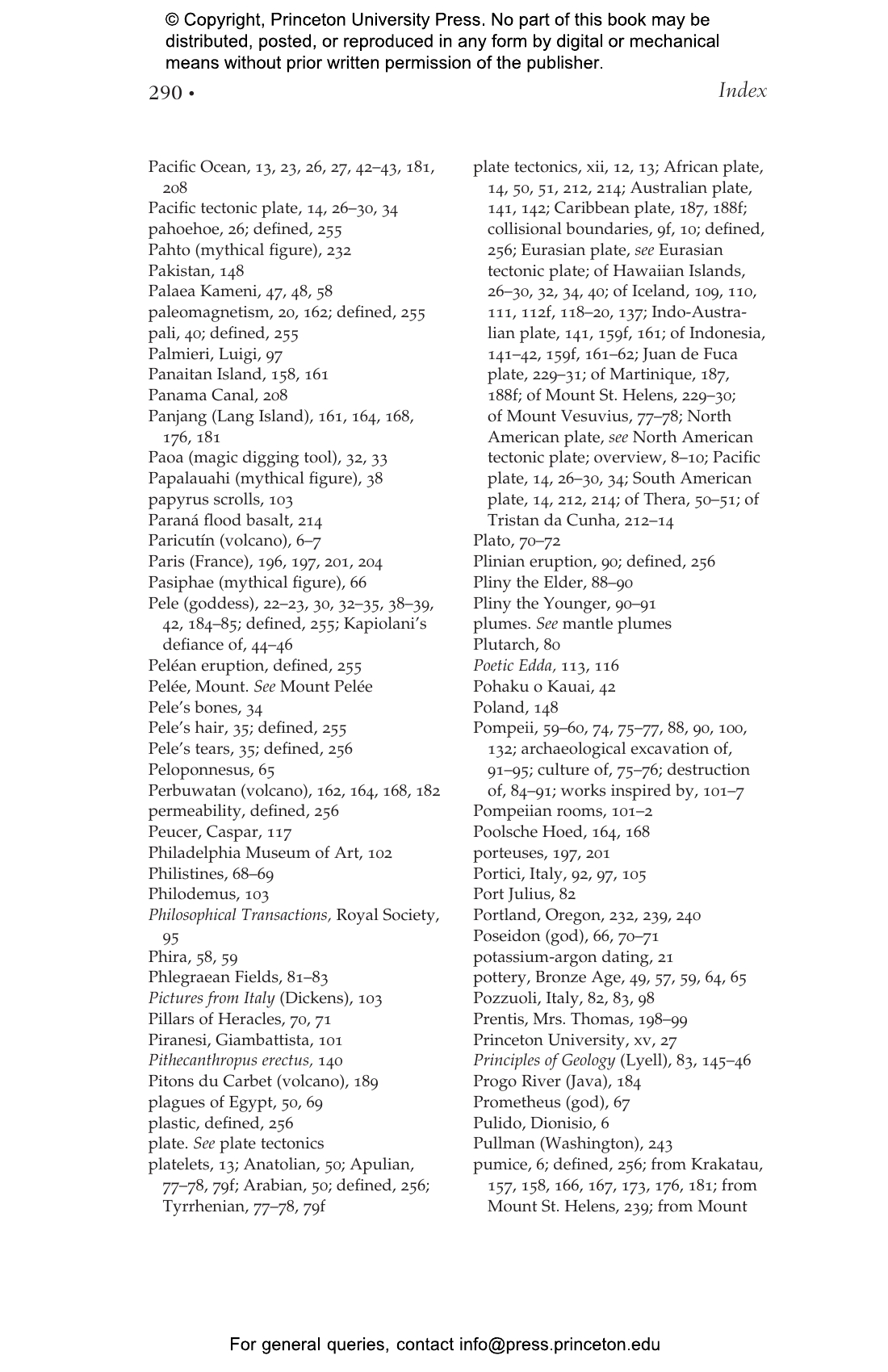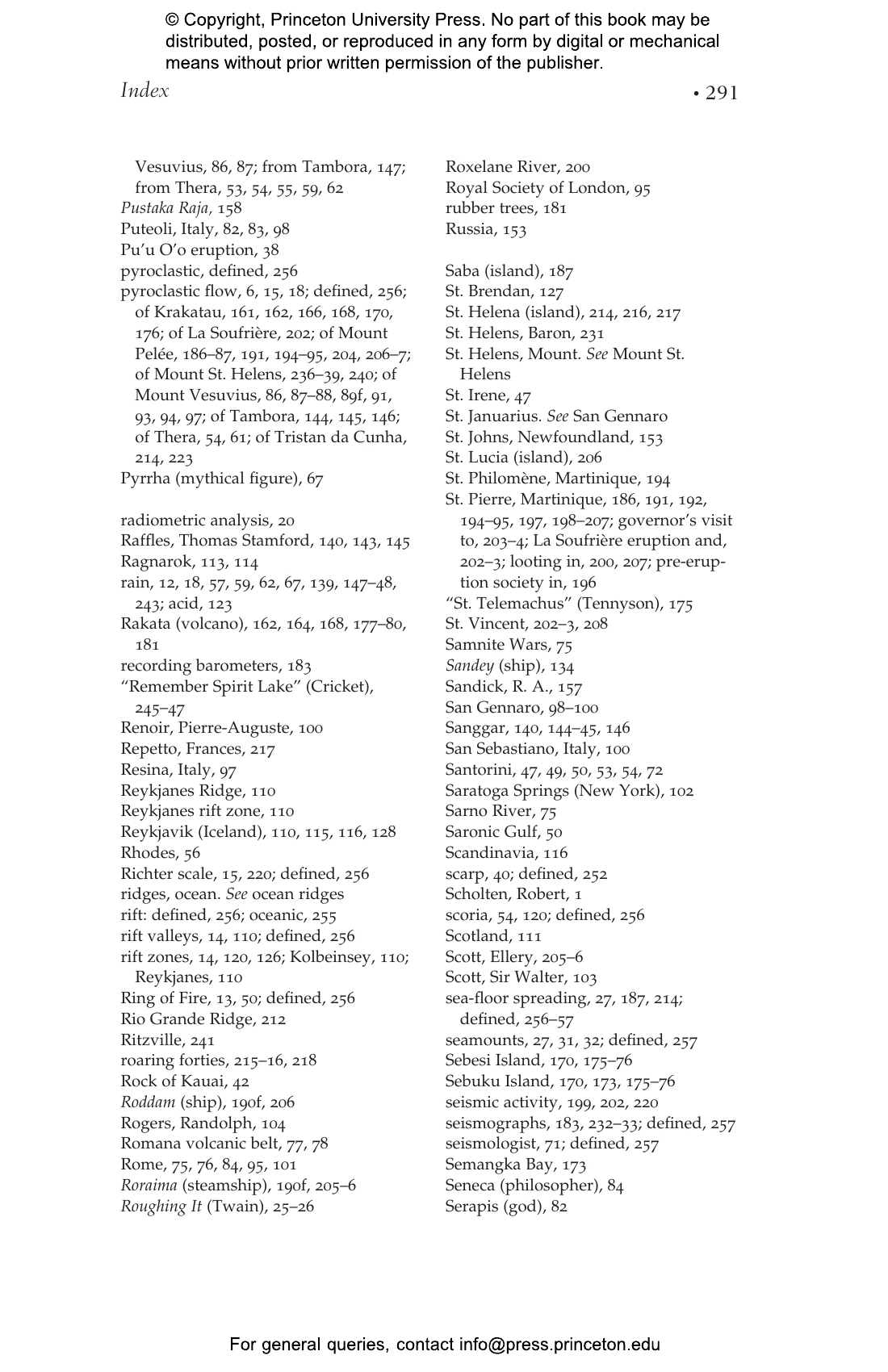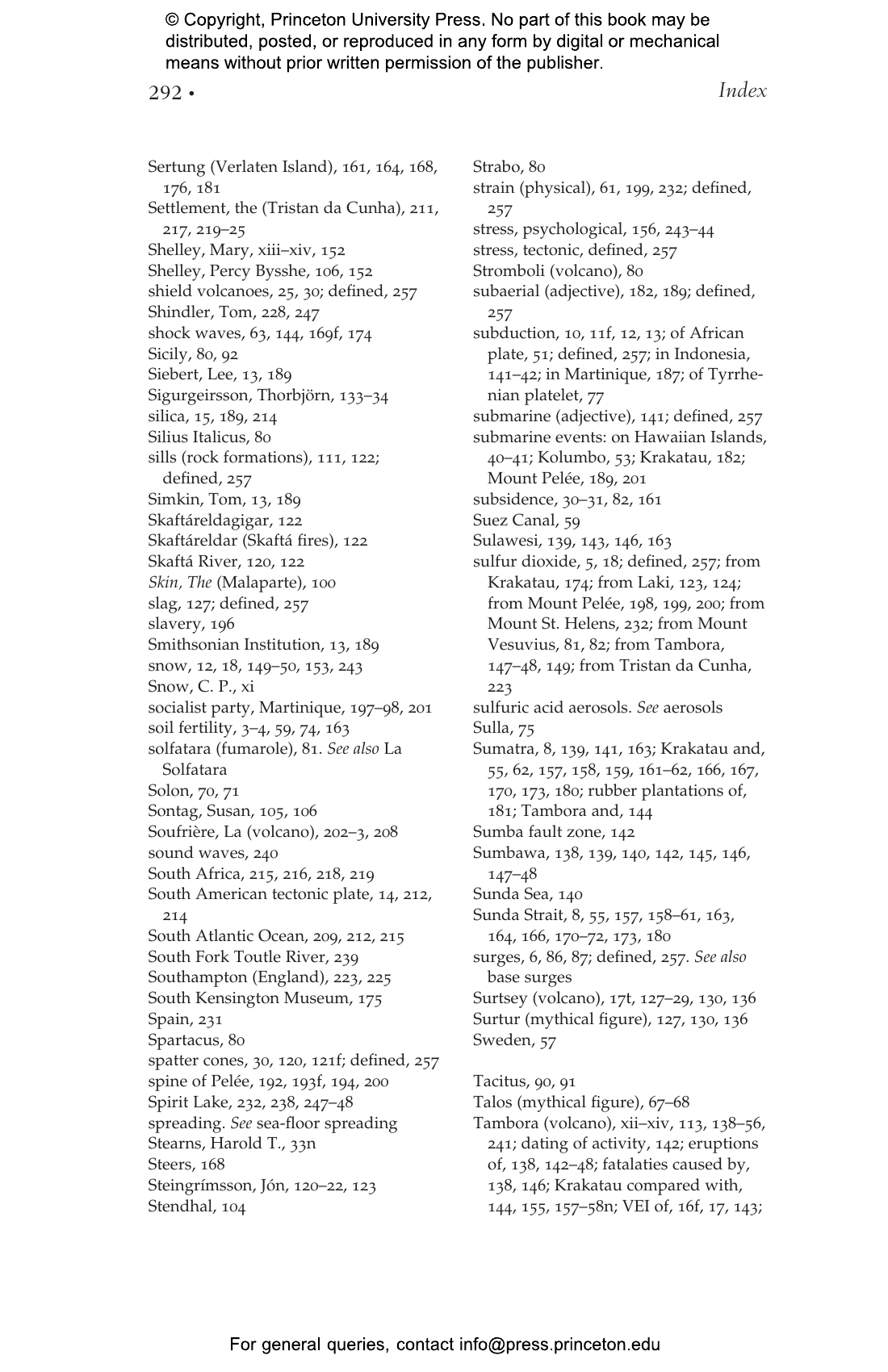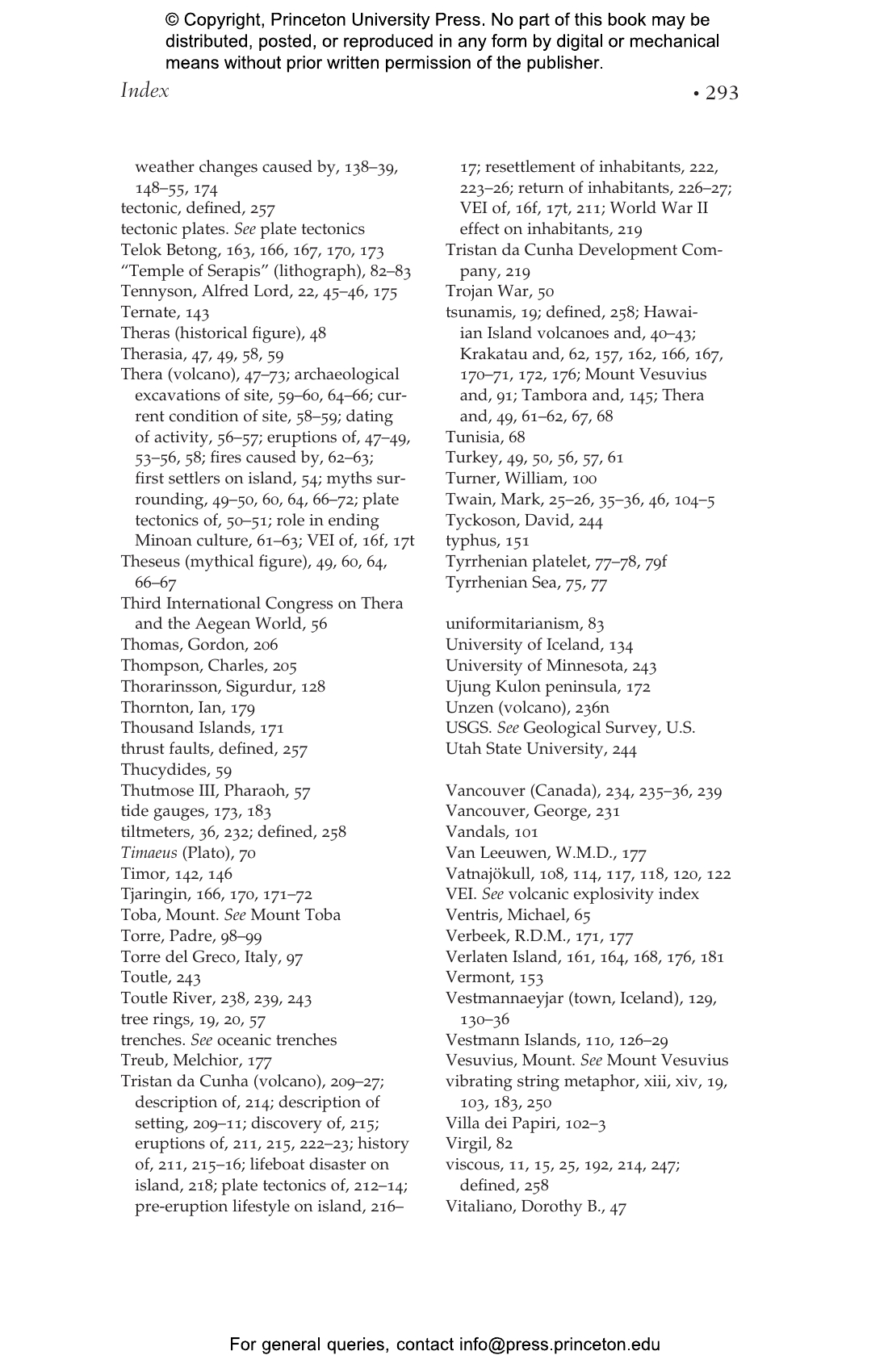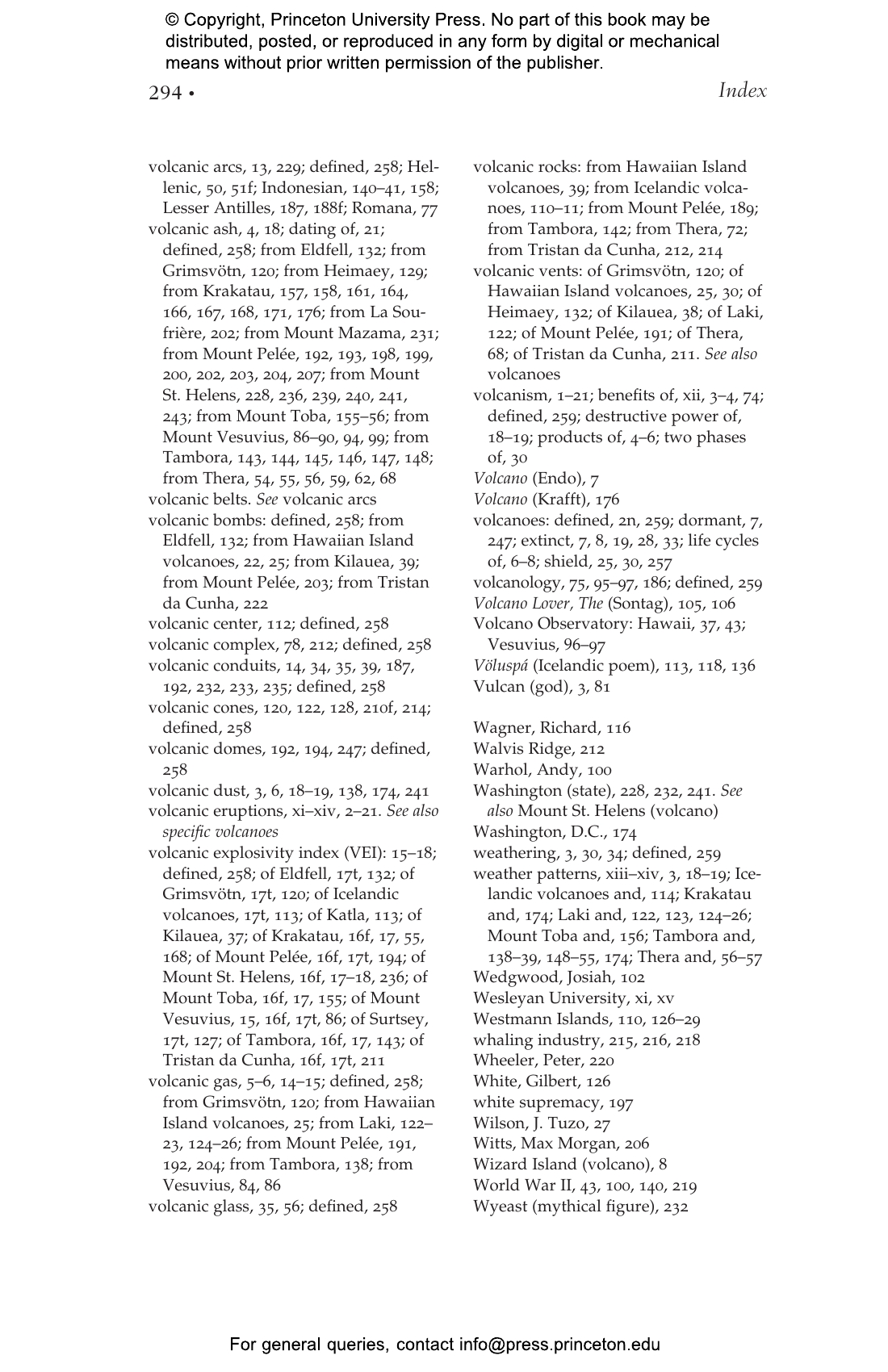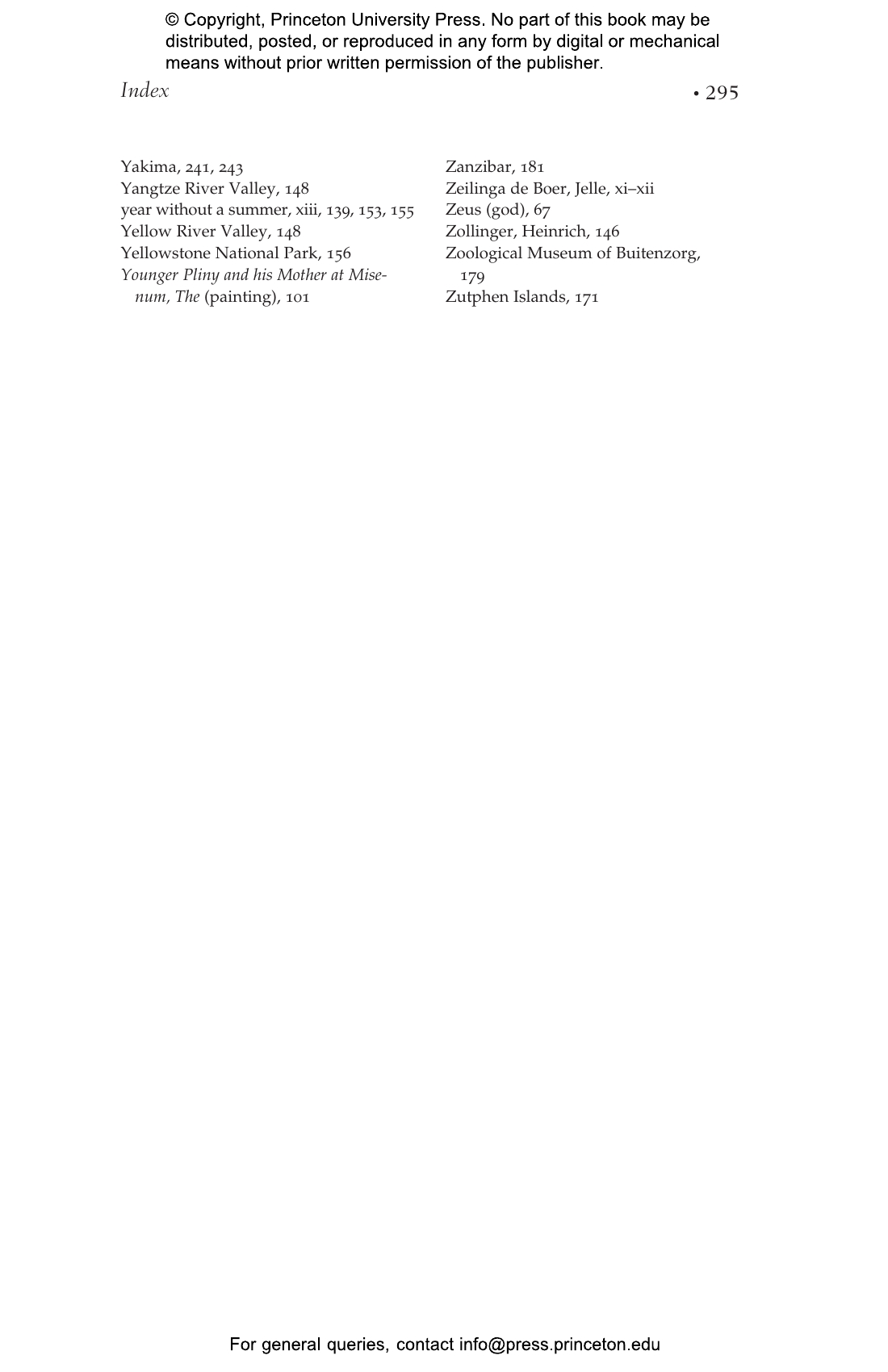When the volcano Tambora erupted in Indonesia in 1815, as many as one hundred thousand people perished from the blast and ensuing famine. Gases and dust particles ejected into the atmosphere changed weather patterns around the world, resulting in the infamous “year without a summer” in North America, food riots in Europe, and a widespread cholera epidemic. And the gloomy weather inspired Mary Shelley to write the gothic novel Frankenstein. This panoramic book tells the story of nine such epic volcanic events, explaining the related geology and exploring the myriad ways our planet’s volcanism has affected human history.
Jelle Zeilinga de Boer (1934–2016) was the Harold T. Stearns Professor of Earth Science at Wesleyan University and the author (with Donald Theodore Sanders) of Earthquakes in Human History (91��ɫ). Donald Theodore Sanders (1930–2014) was a petroleum geologist and science editor.
7128
"A detailed and vivid account of the fiery relationship between the Earth and its surface dwellers."—The Guardian
"Does the world need another book about volcanic eruptions and the havoc they wreak? The answer, for this book, is an emphatic 'yes,' especially for the general reader. Besides being interesting to read, Volcanoes in Human History clearly demonstrates that volcanism, and geology as a whole, should not be of concern only to geologists and that history is important."—Sally Newcomb, Isis
"The authors have applied their geologic knowledge and experience, along with solid research, to produce an accessible book on volcanoes."—Library Journal
"In clear prose aimed to include general readers, the authors make the case for the social consequences set in motion by large volcanic eruptions as both wide-ranging and long-lived."—Choice Reviews
“Most people seldom think about volcanoes or the role they have played in human history. . . . [This book’s] chilling examples show the profound impact volcanic eruptions have had upon humans.”—Robert D. Ballard, coauthor of Into the Deep: A Memoir from the Man Who Found “Titanic”
“There is a growing awareness of the interplay between natural disasters and human societies, putting this book at the cutting edge of an important trend. It integrates science with societal issues in a way that is compelling and interesting. With its informative but nontechnical style, it should appeal to both scientists and nonspecialists.”—Susan Hough, author of The Great Quake Debate: The Crusader, the Skeptic, and the Rise of Modern Seismology


